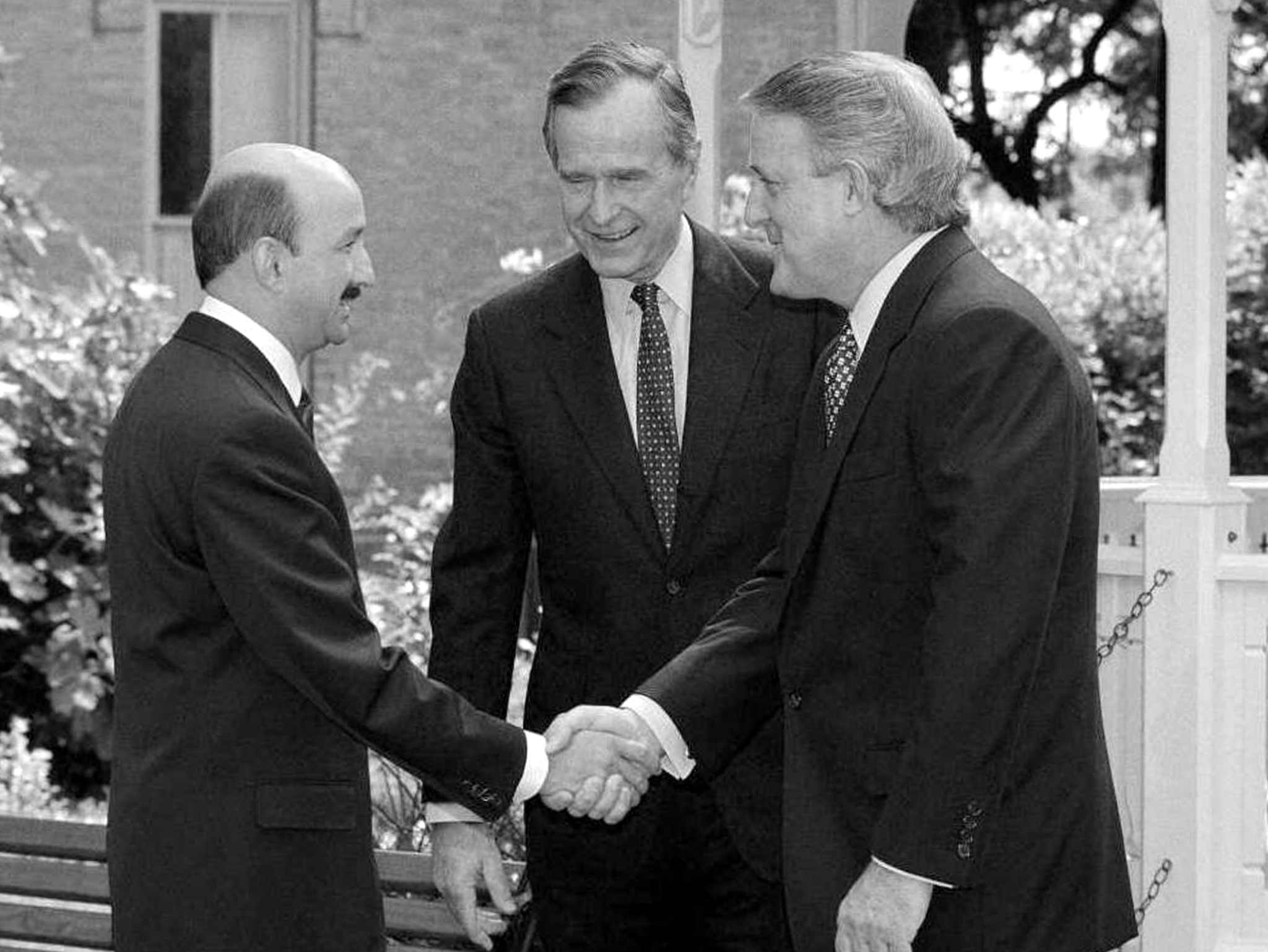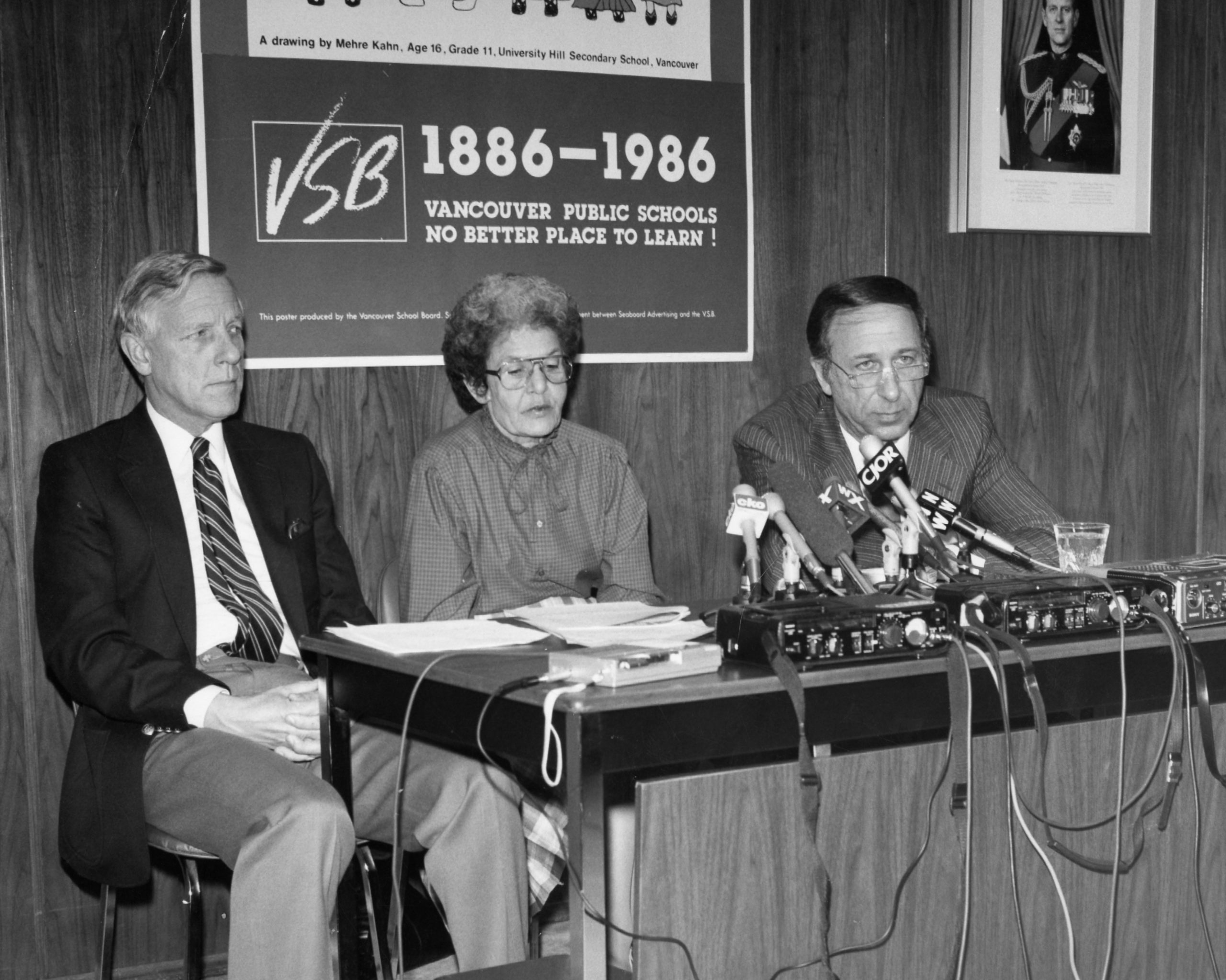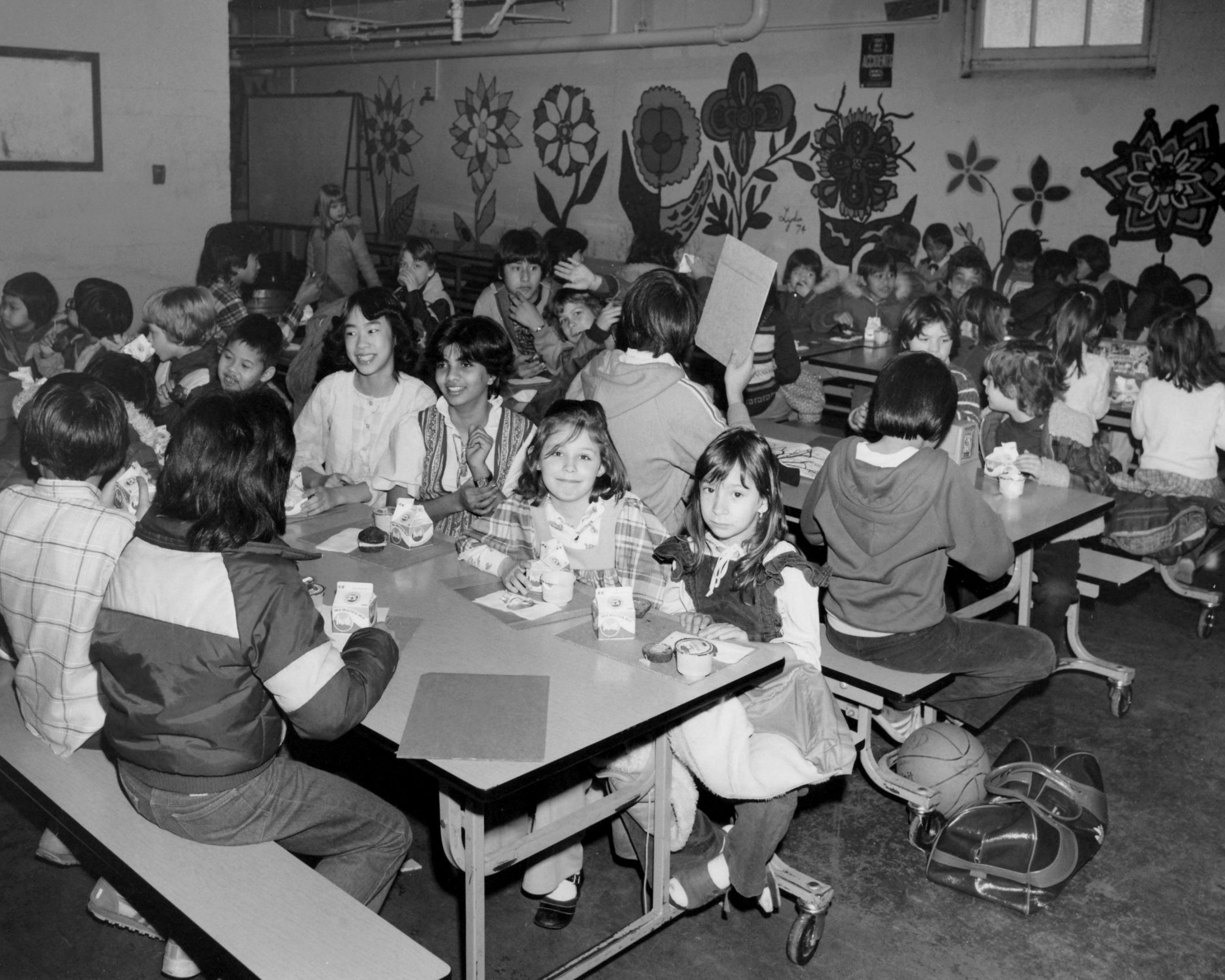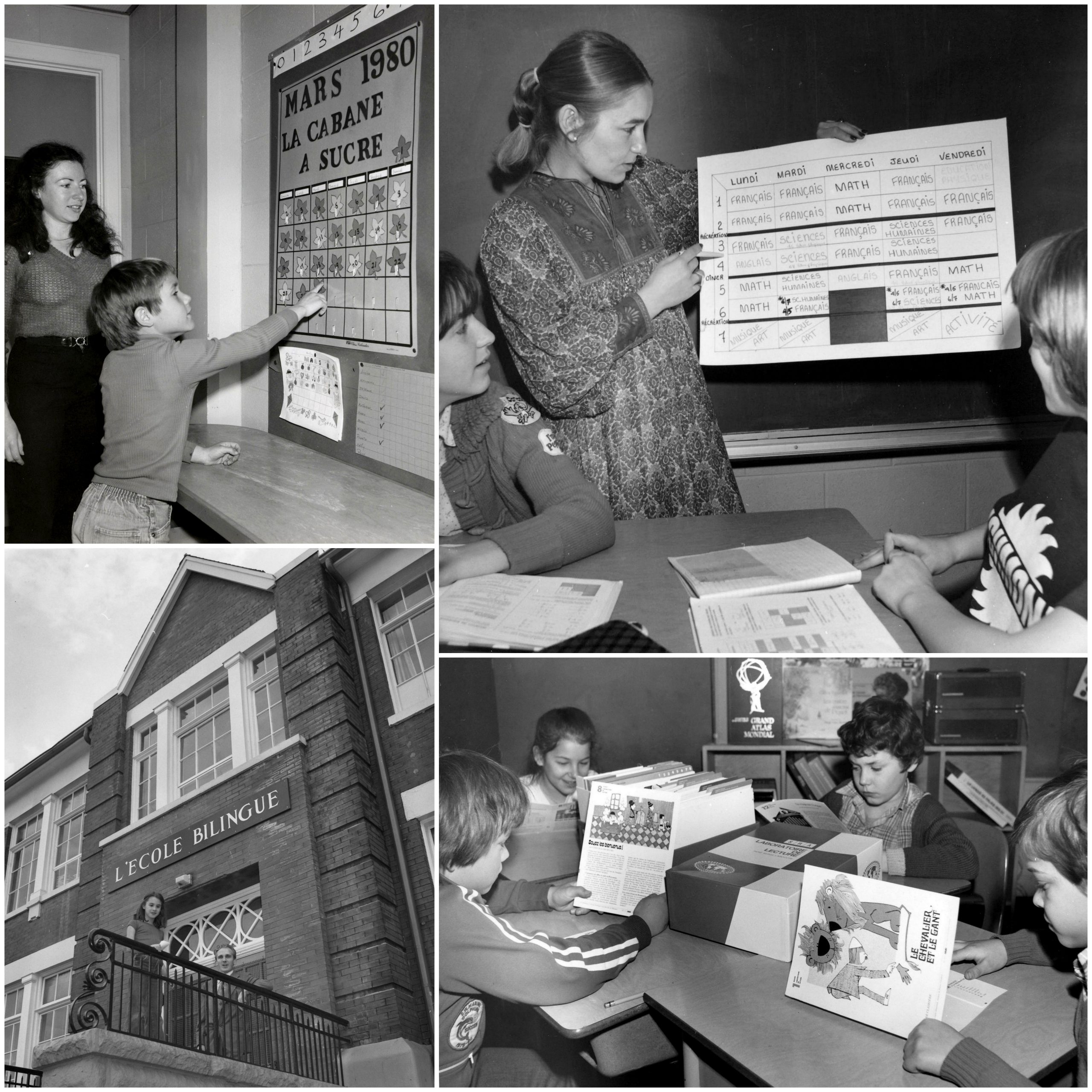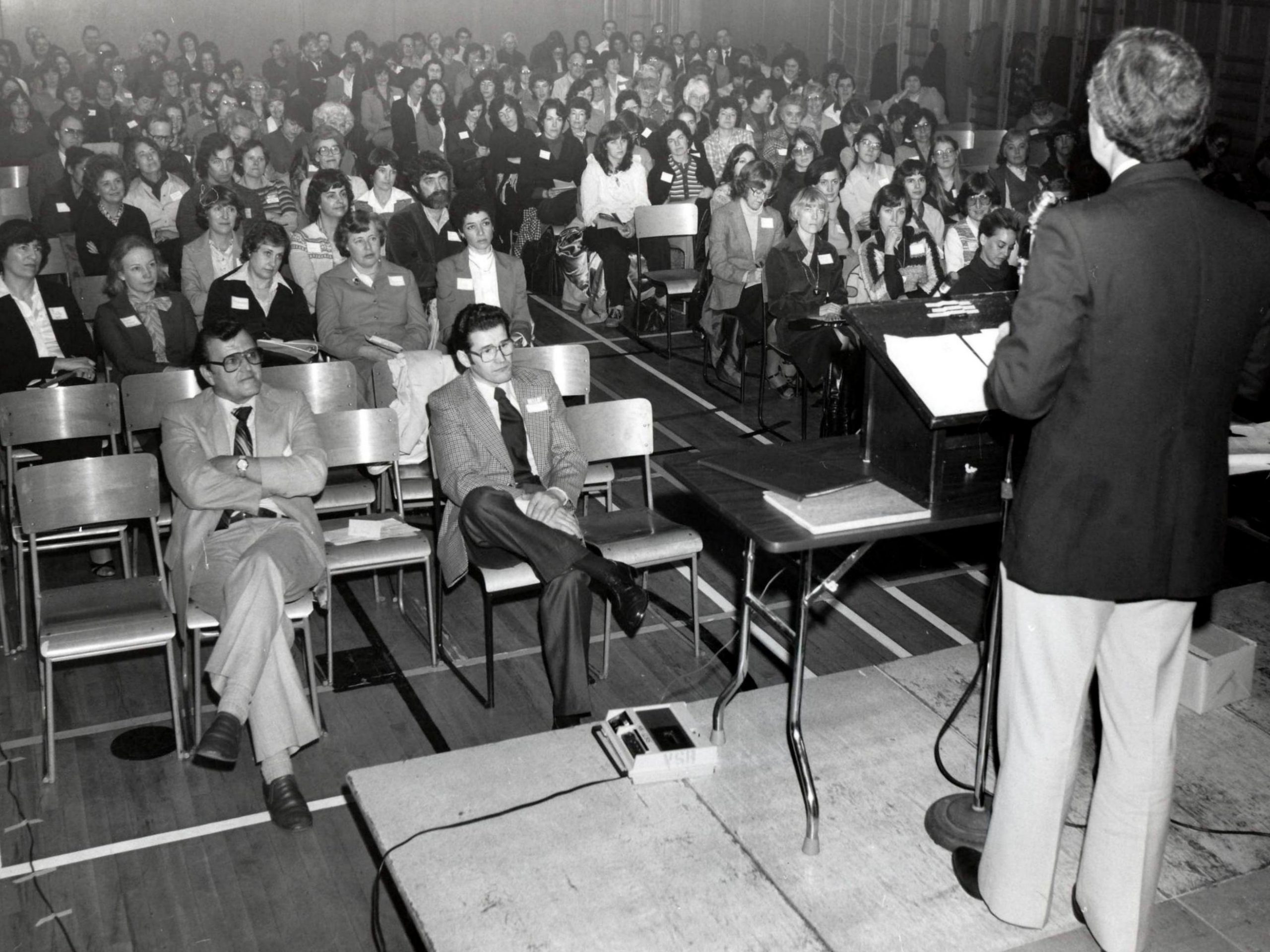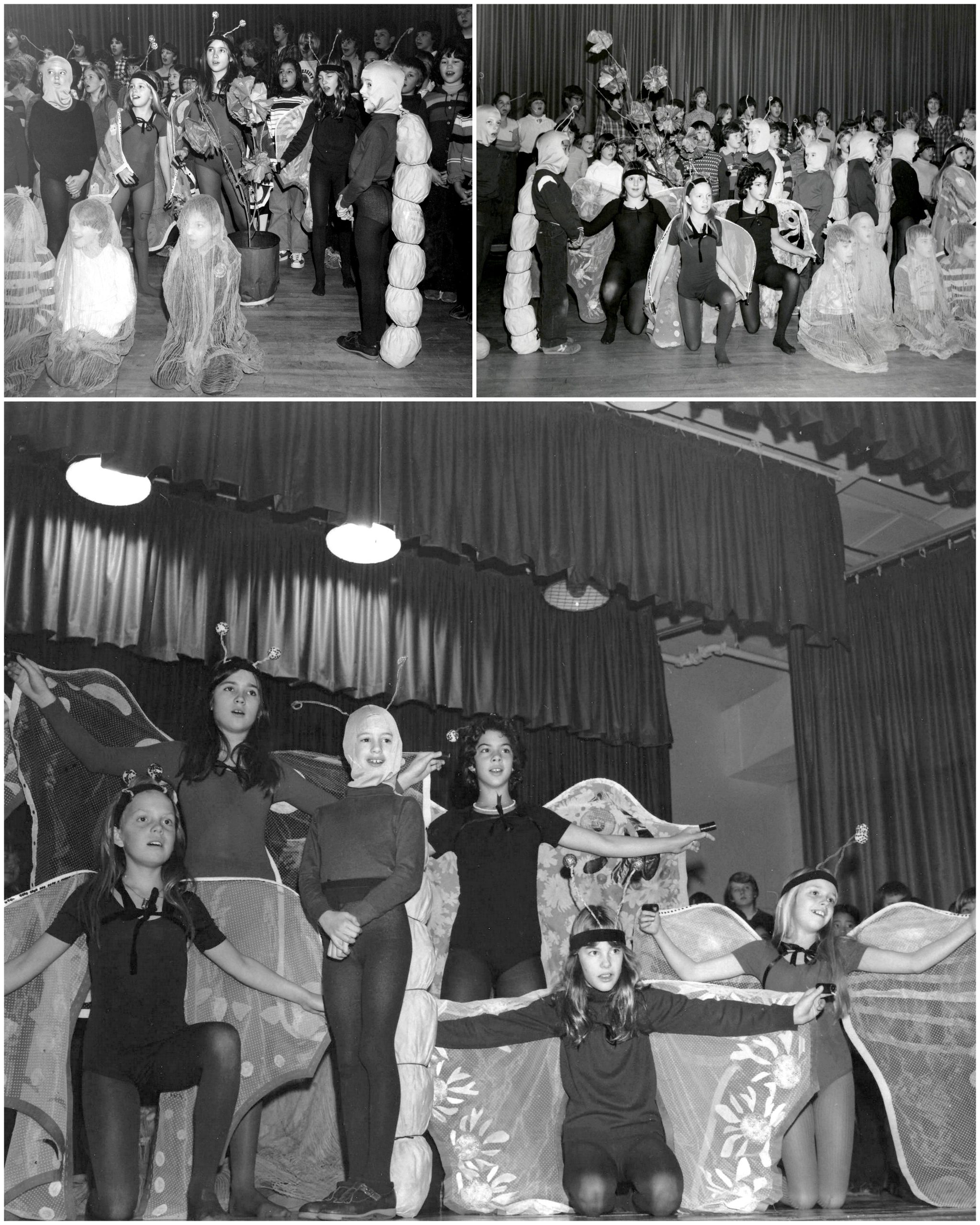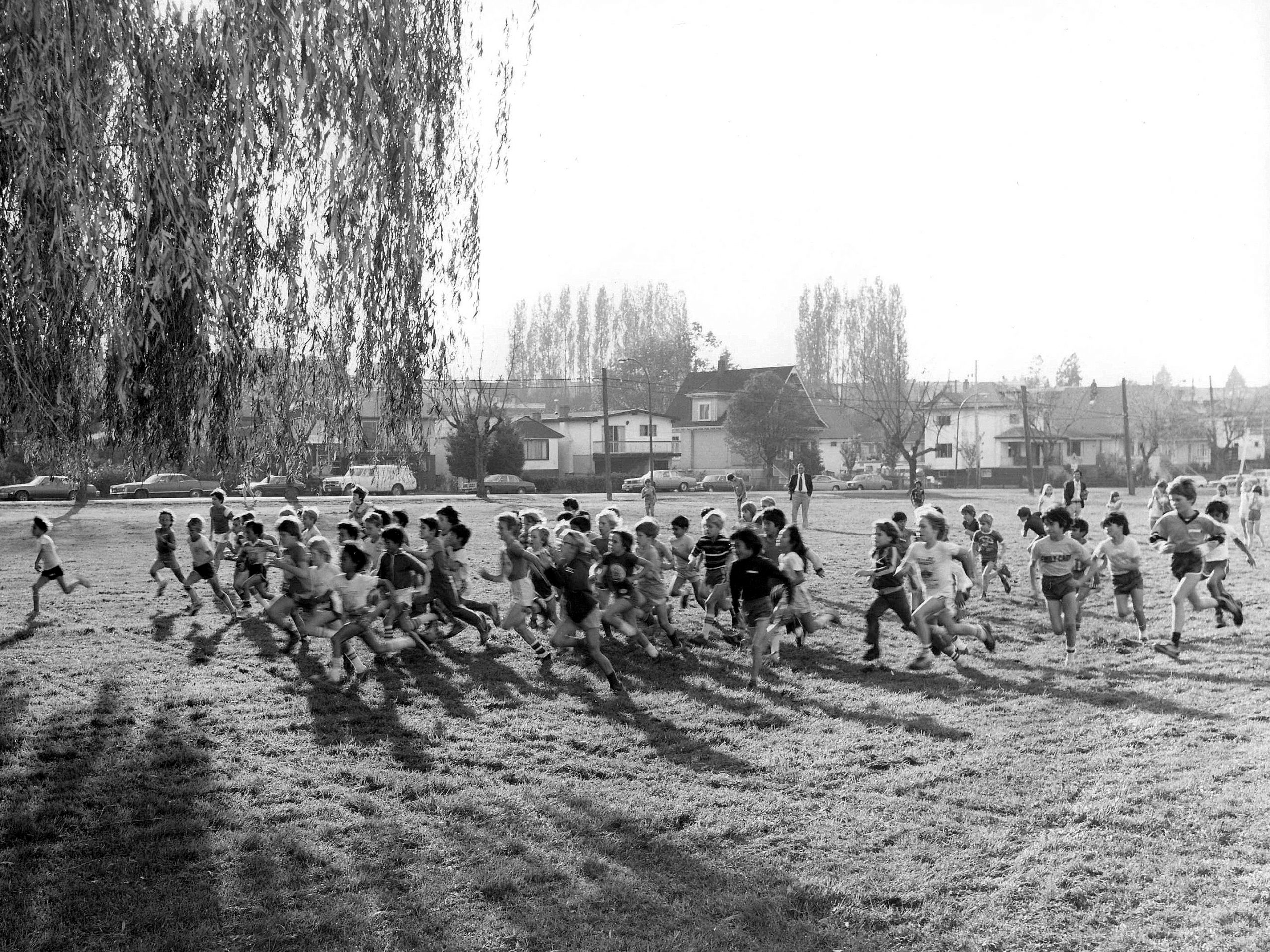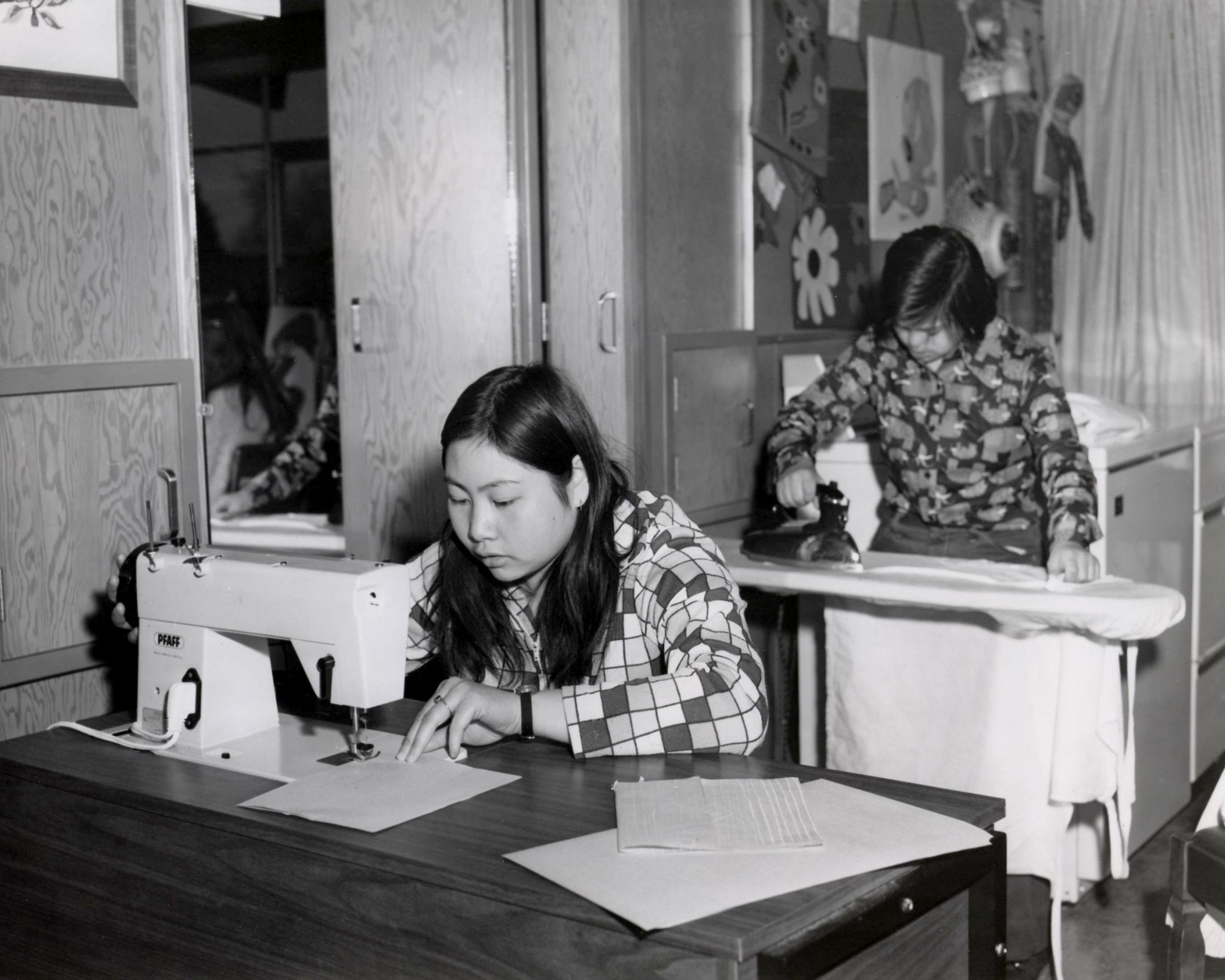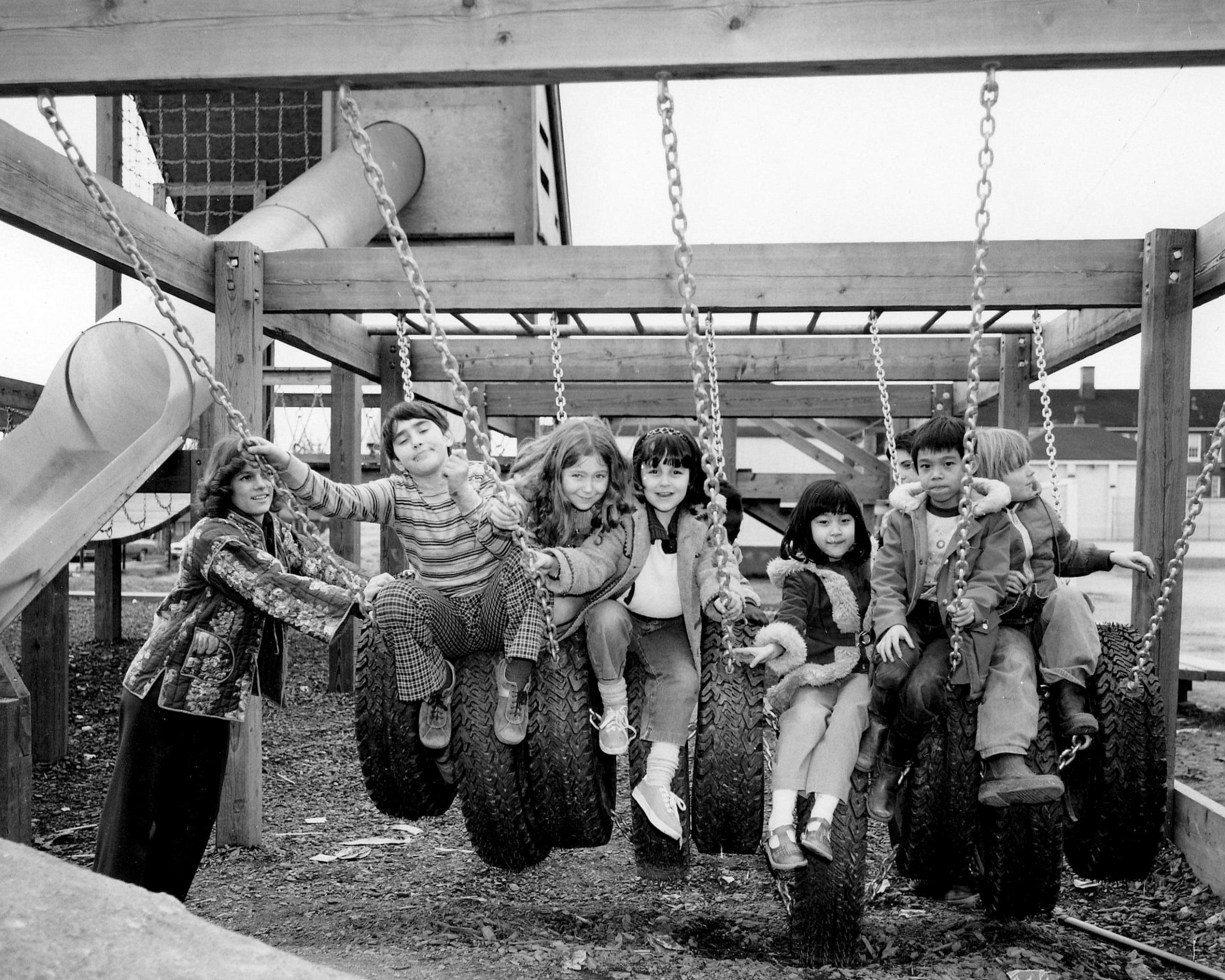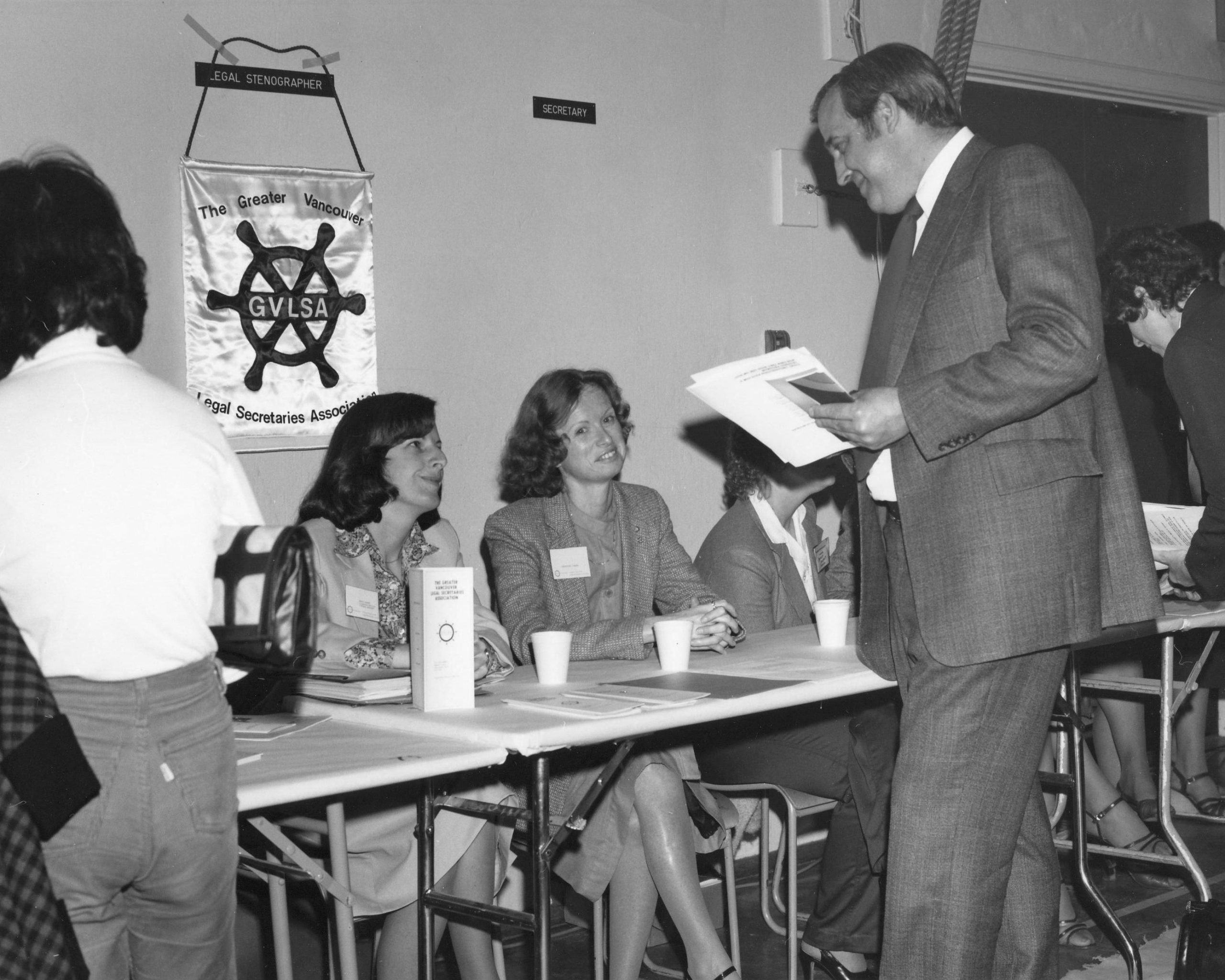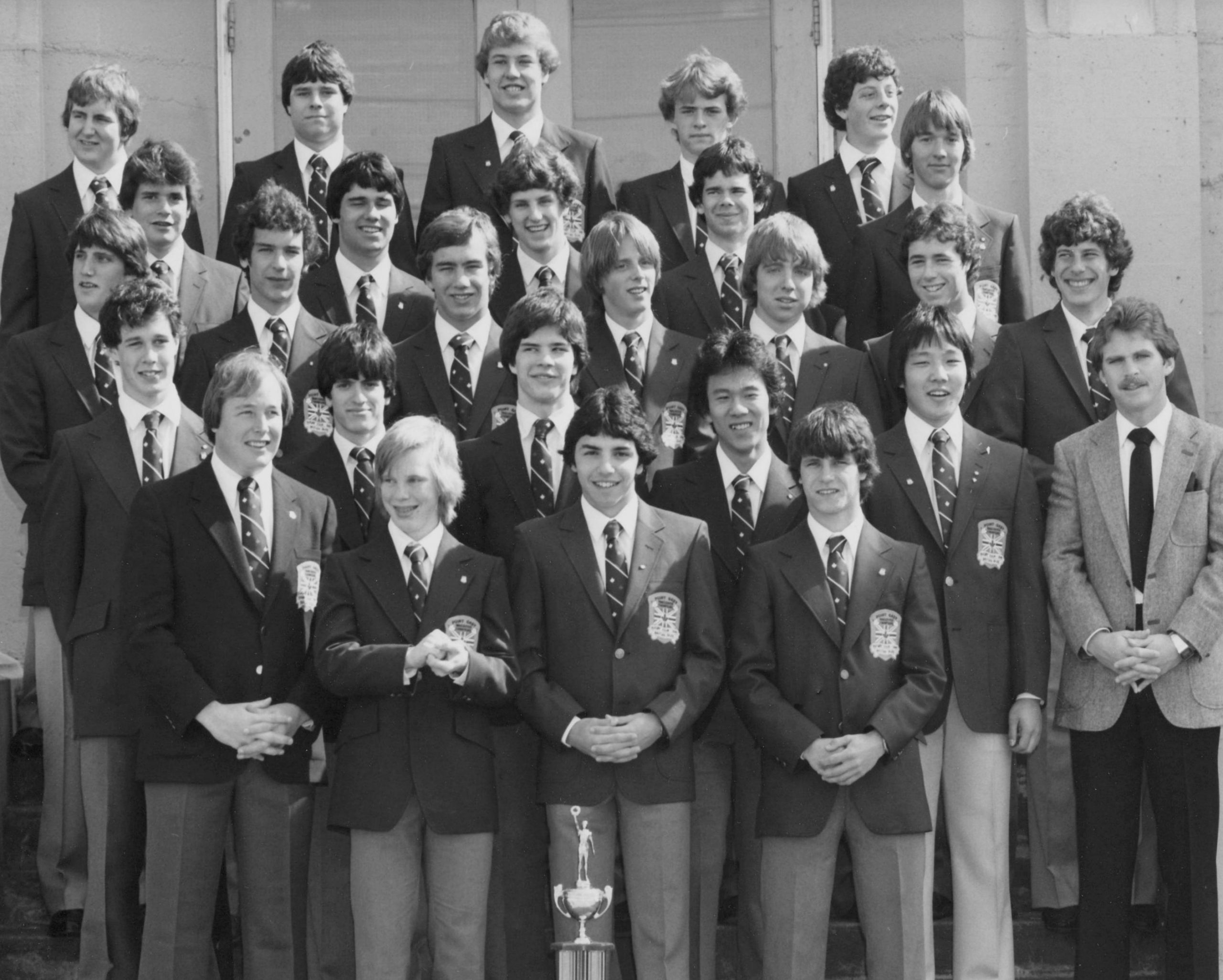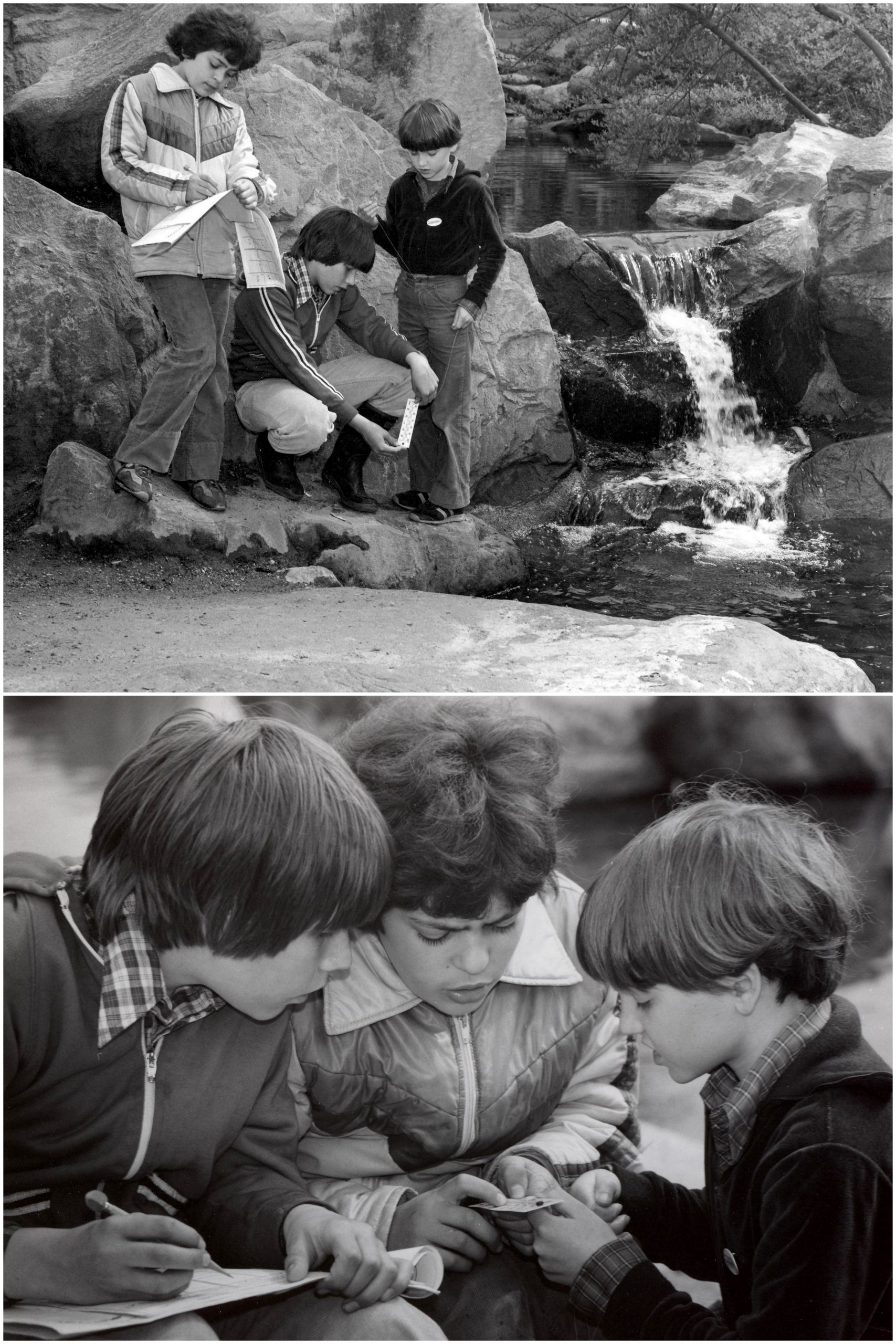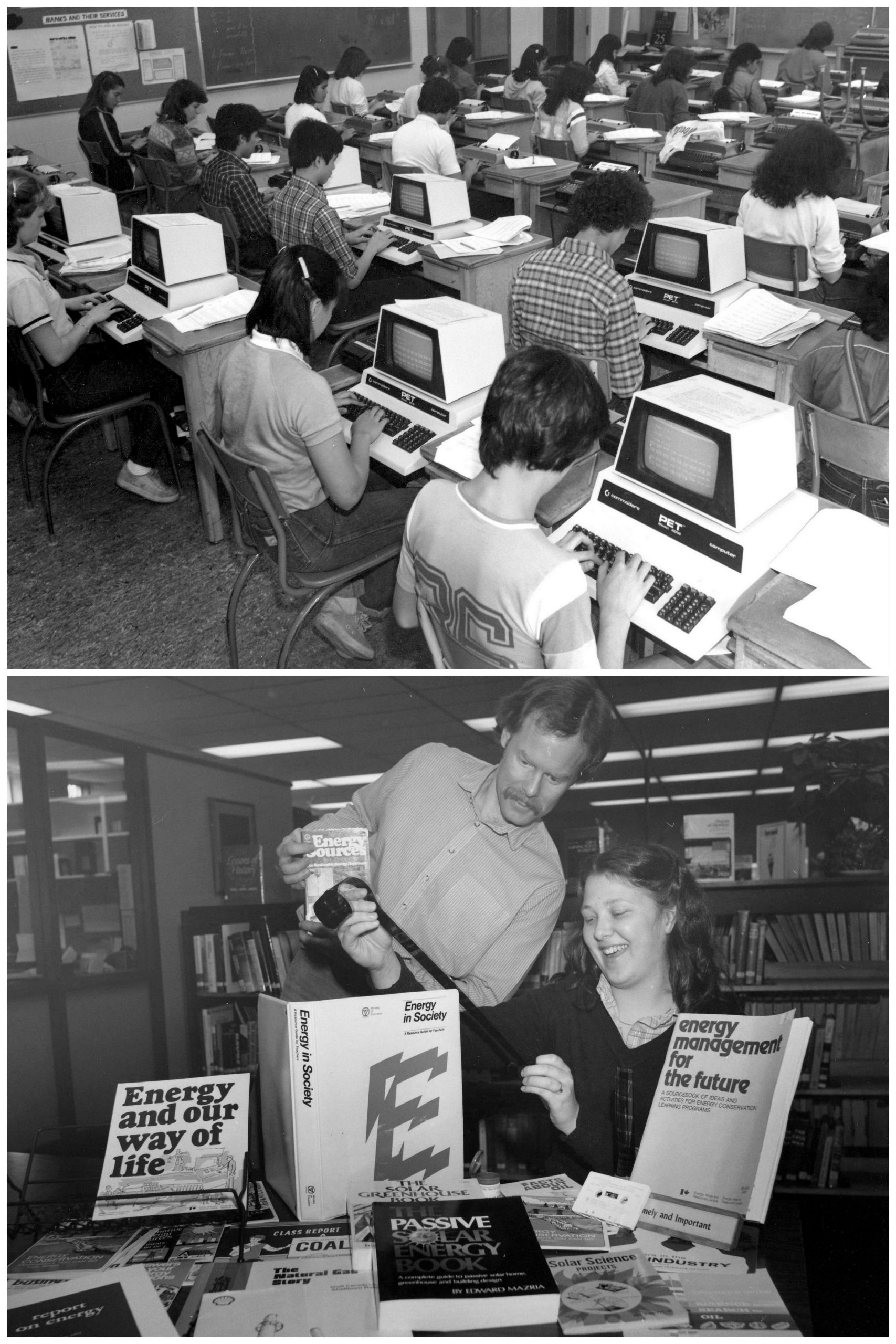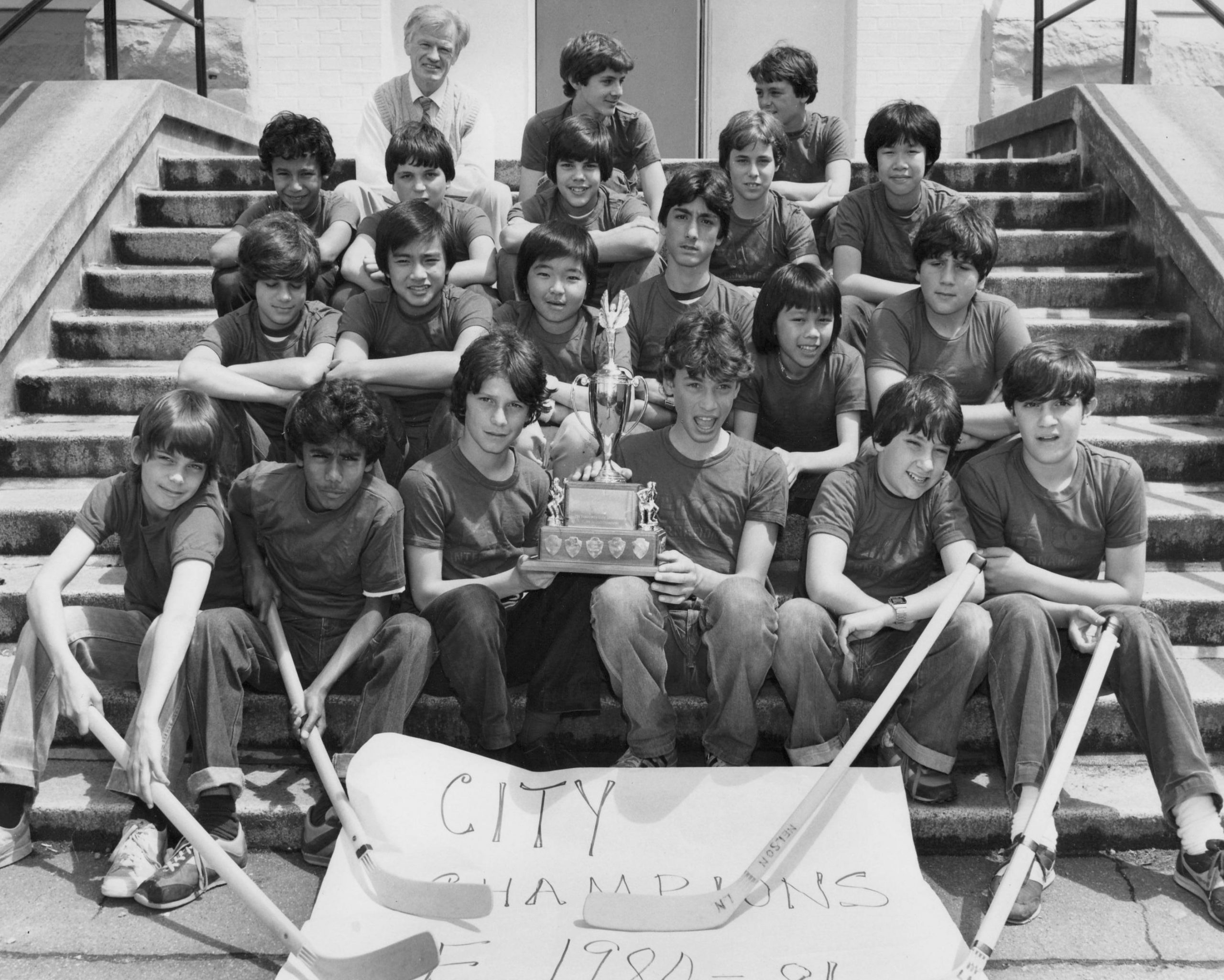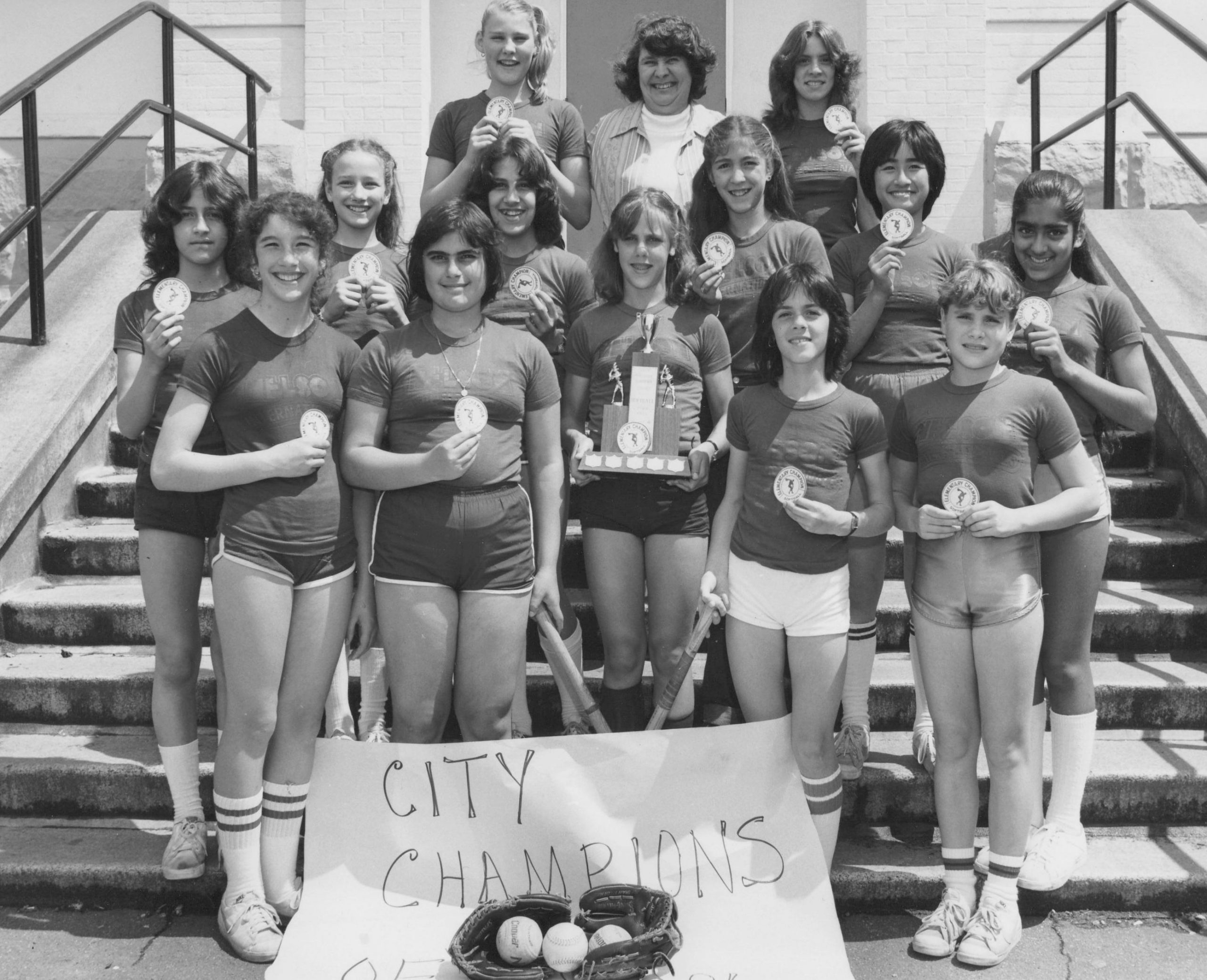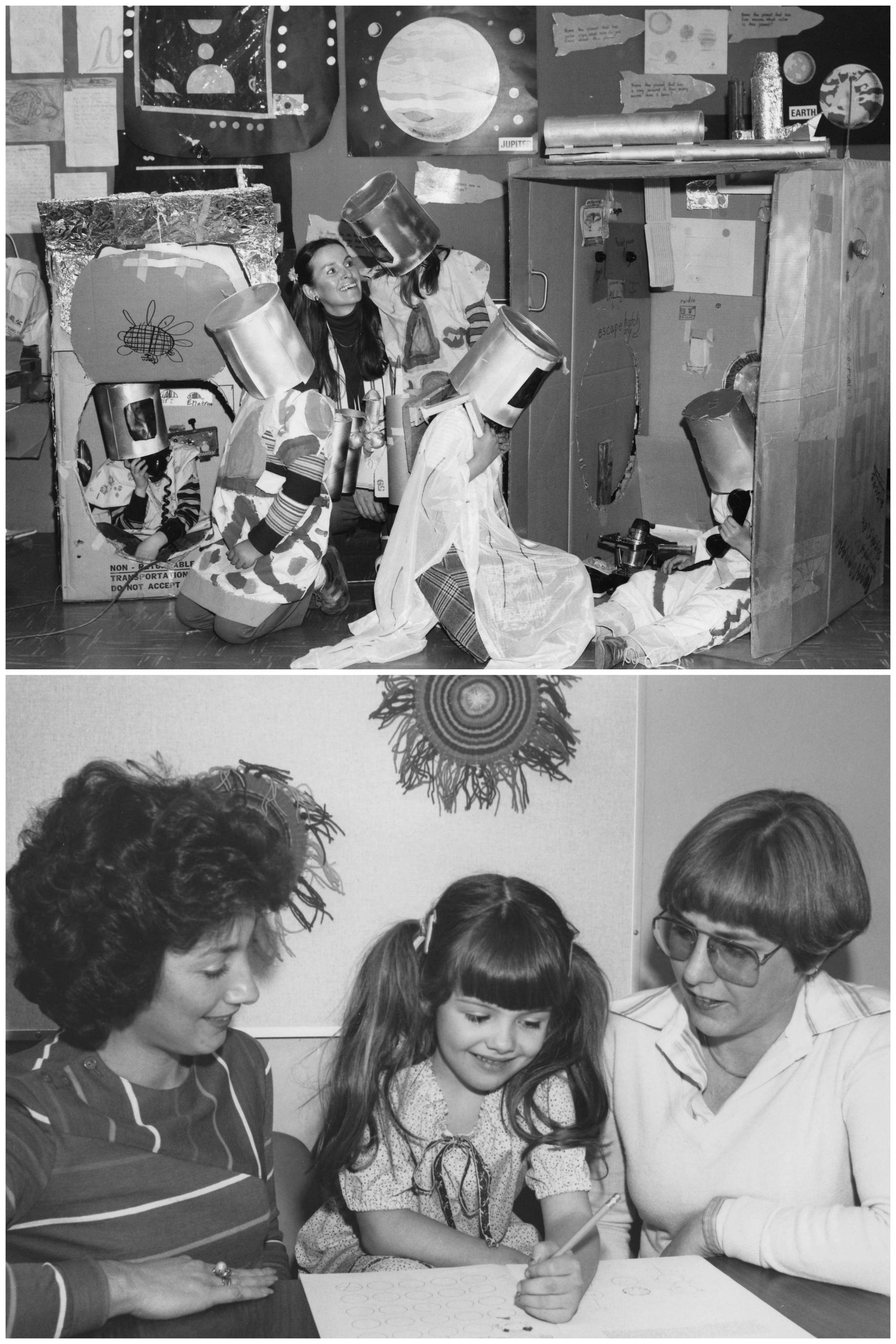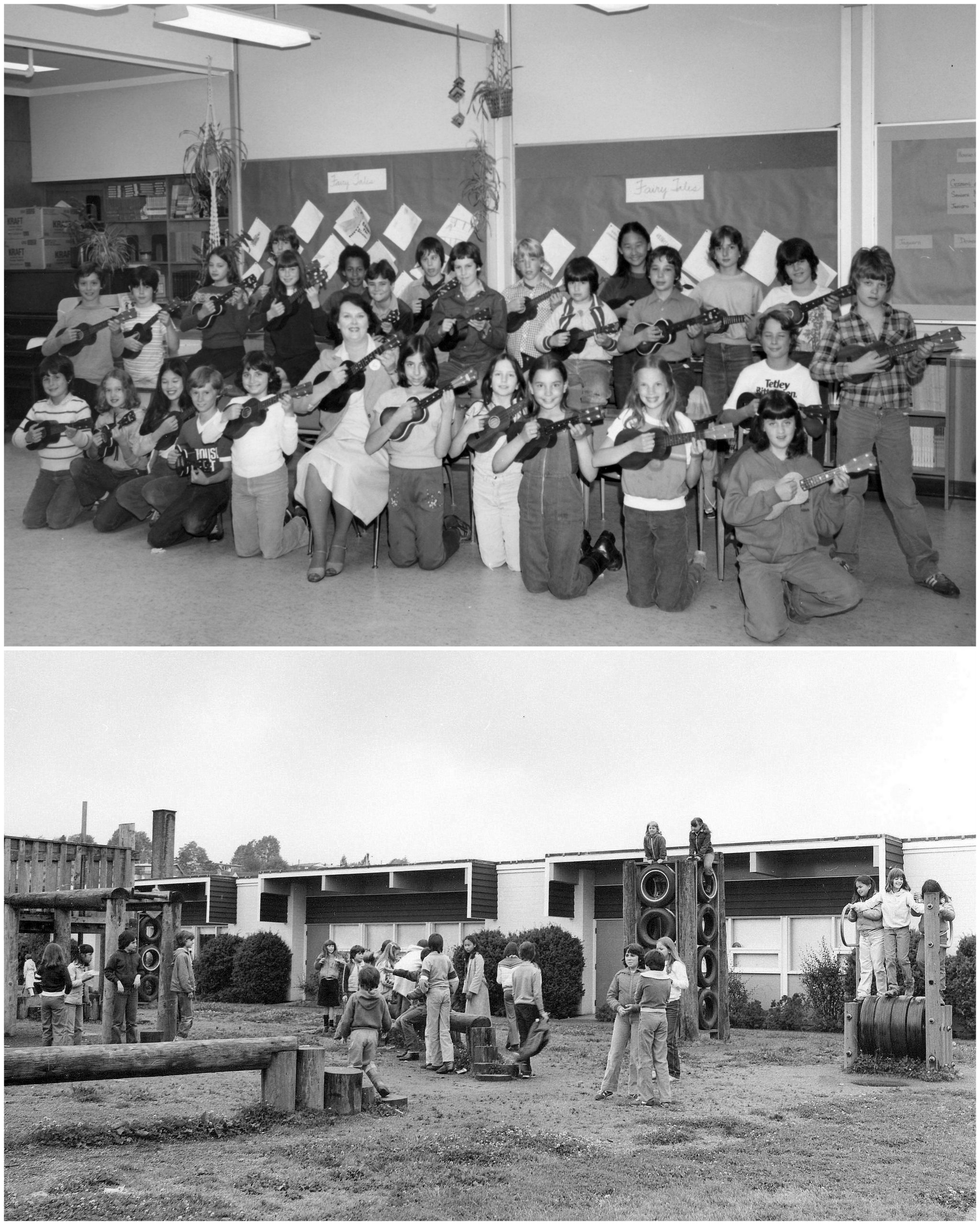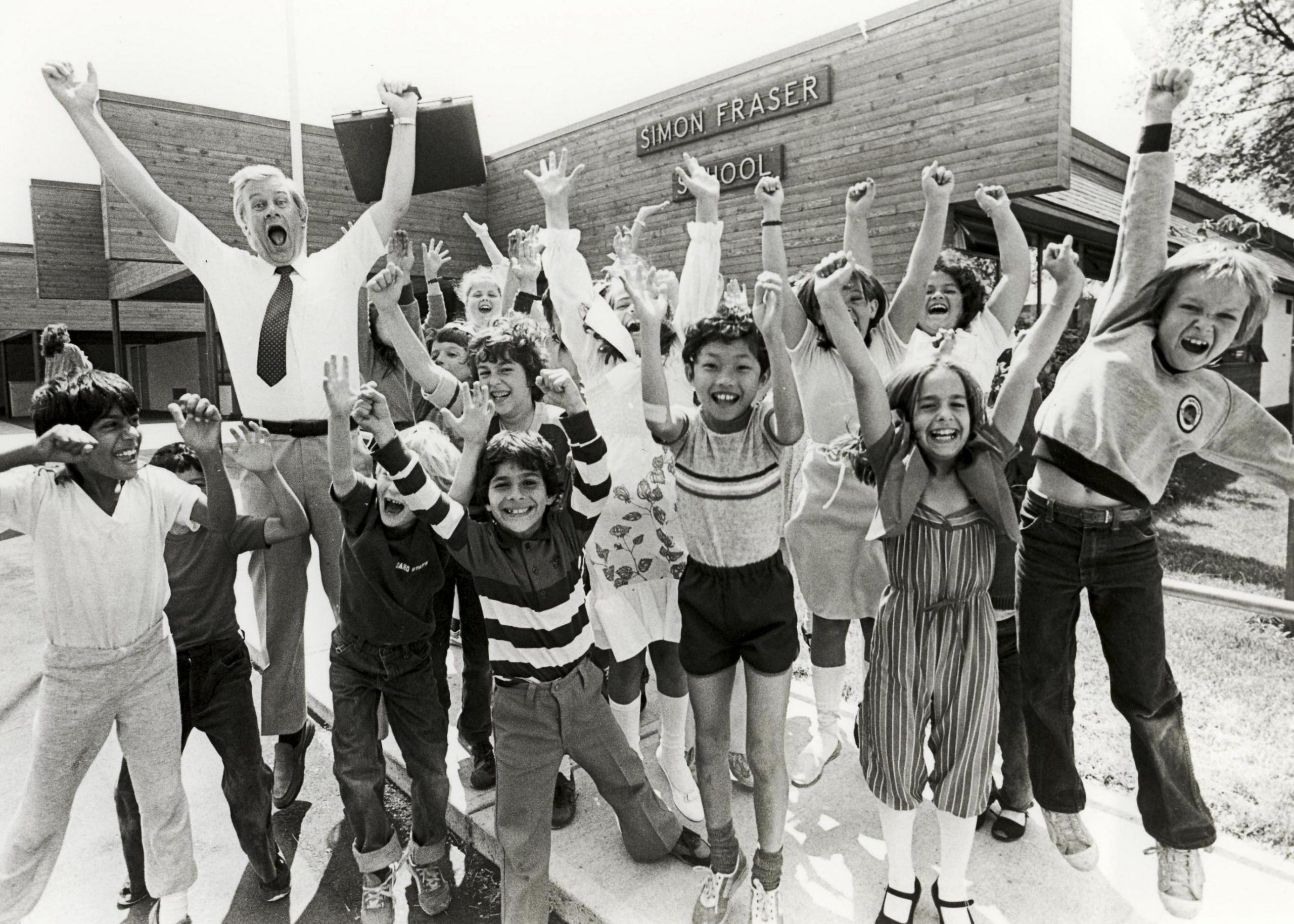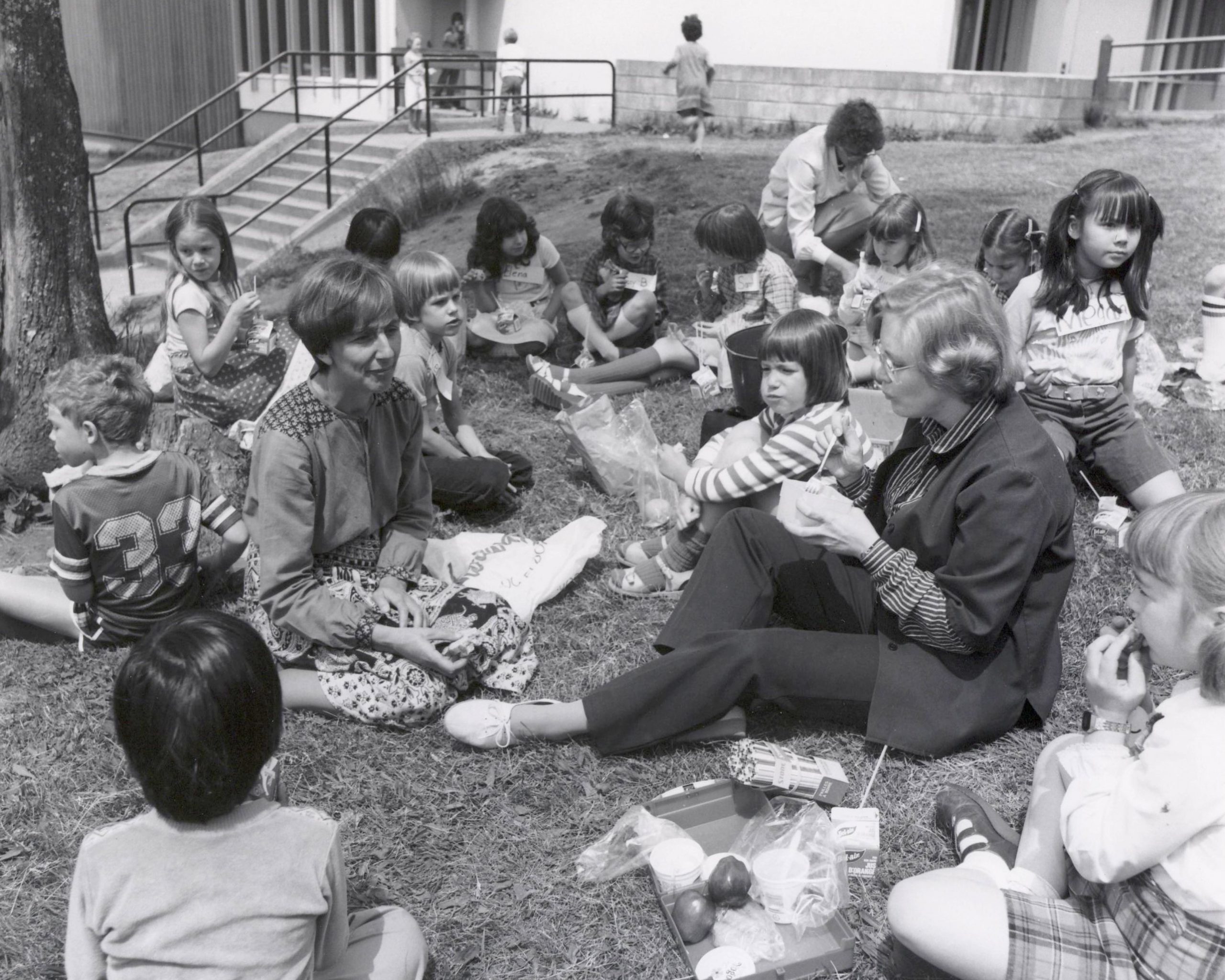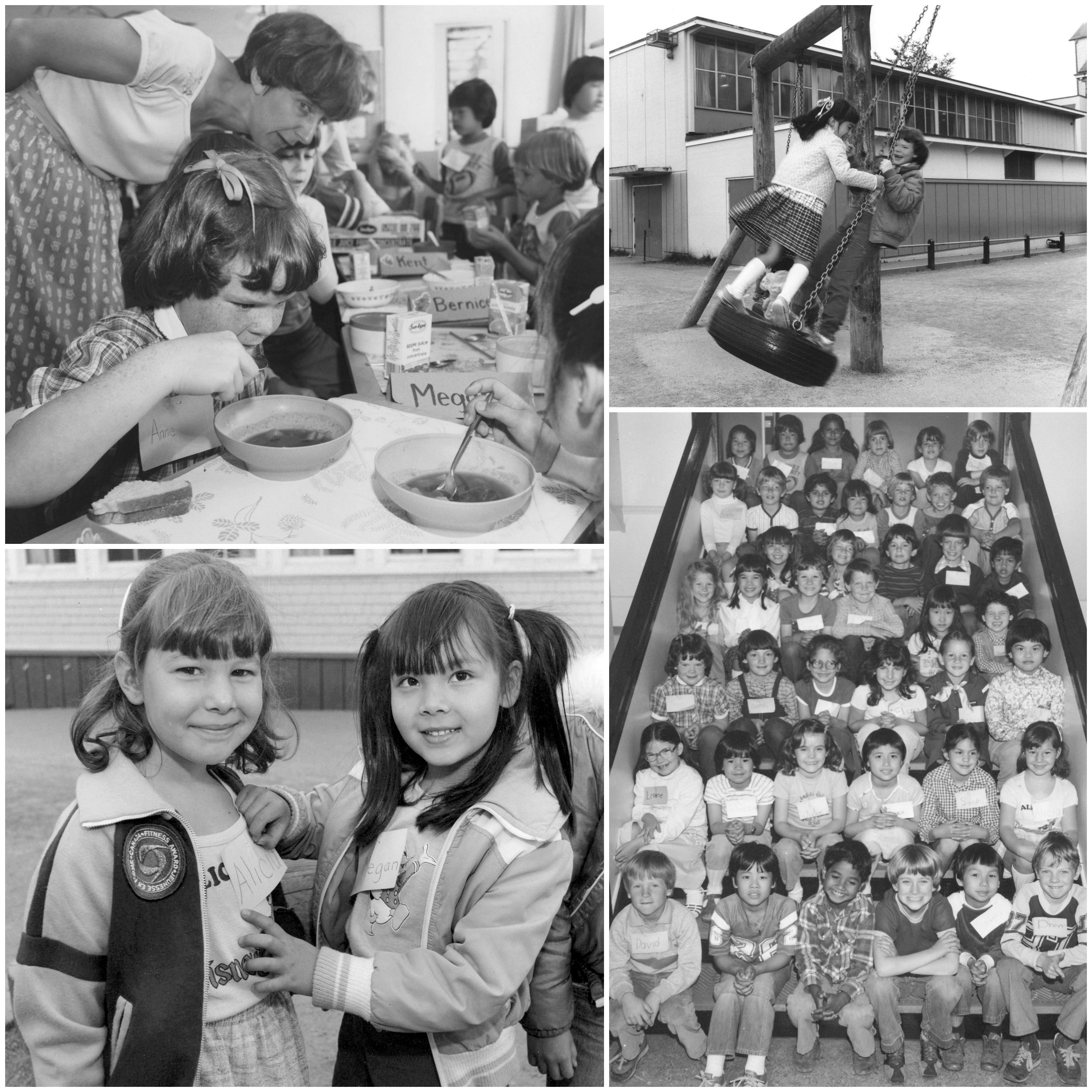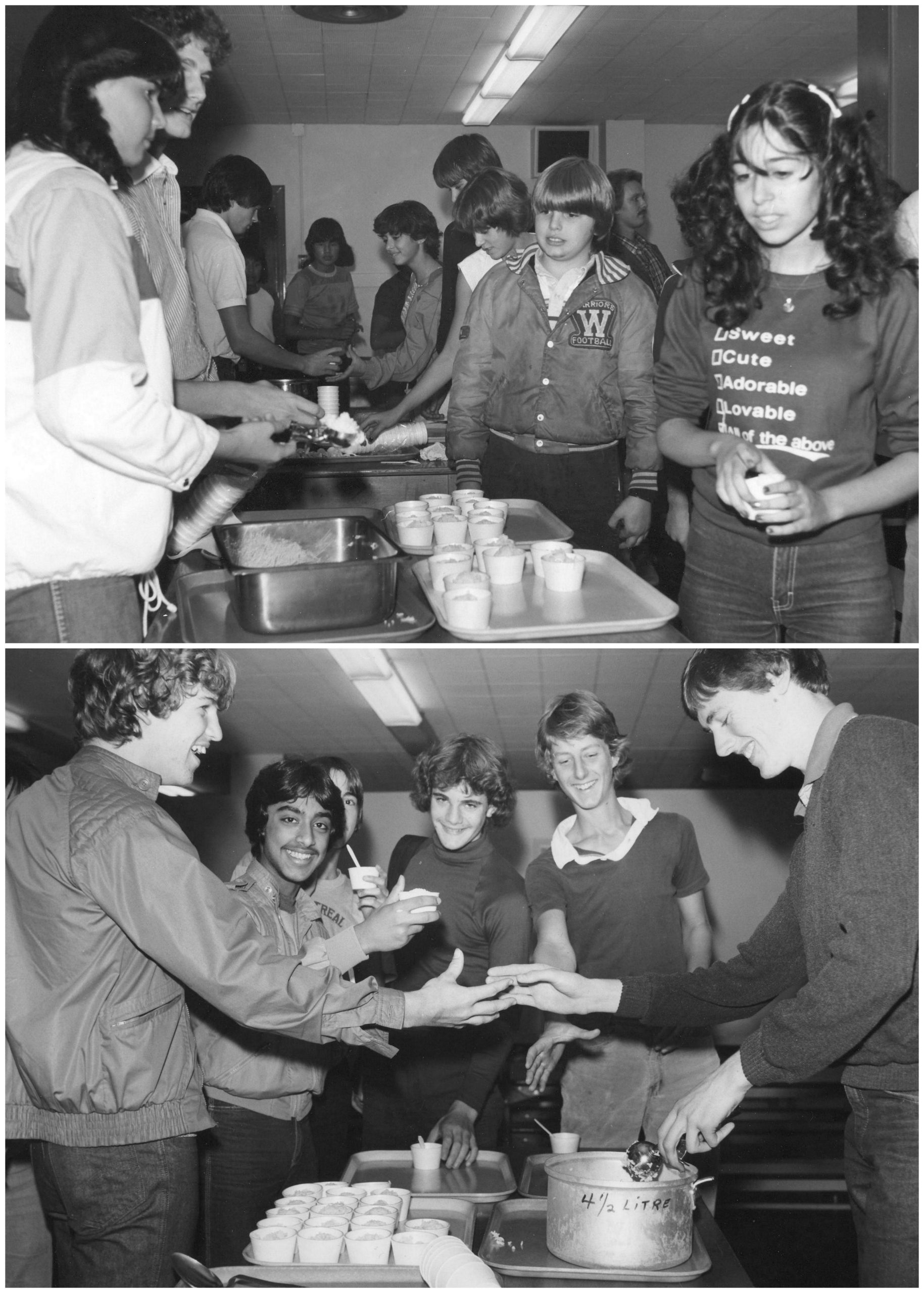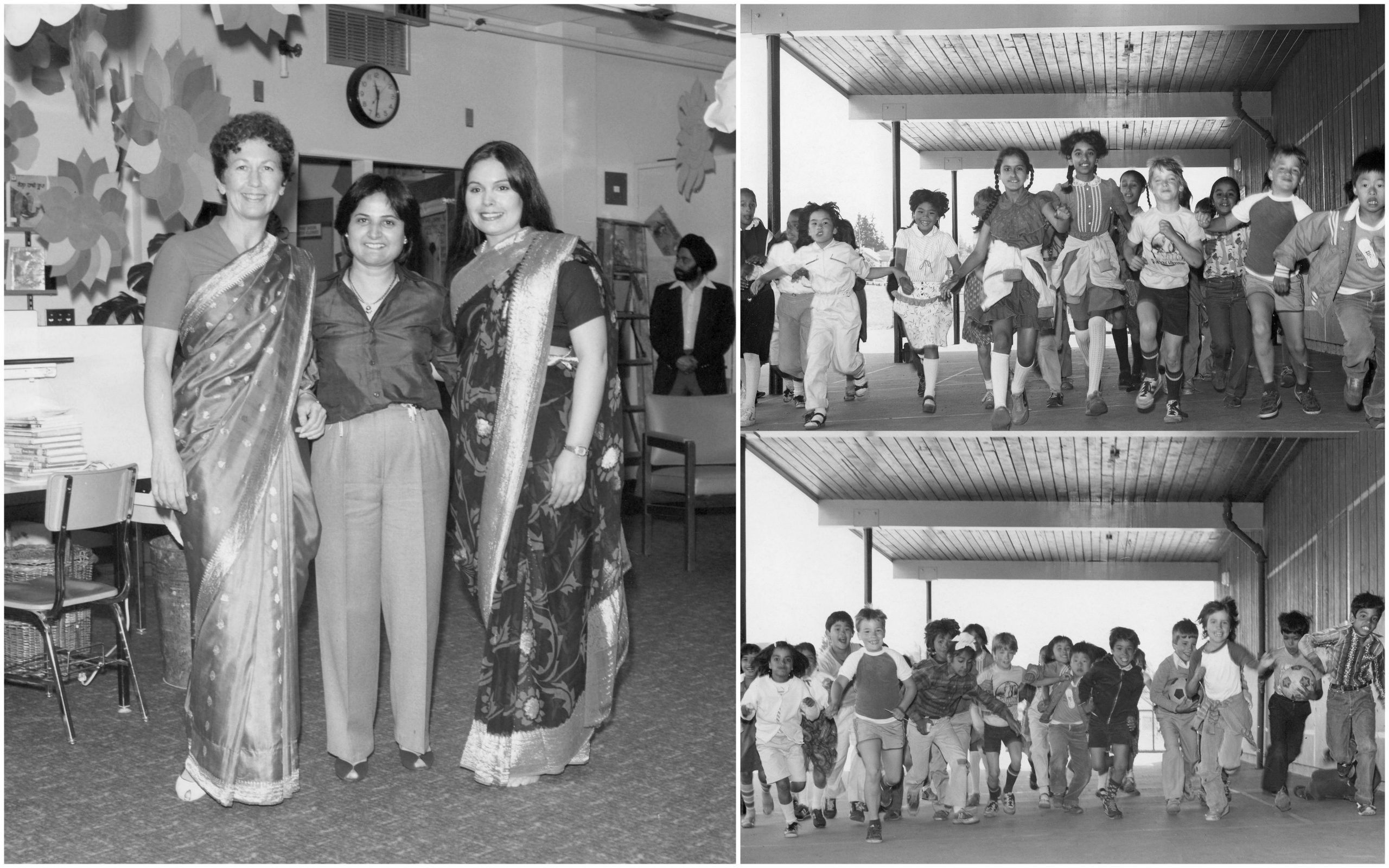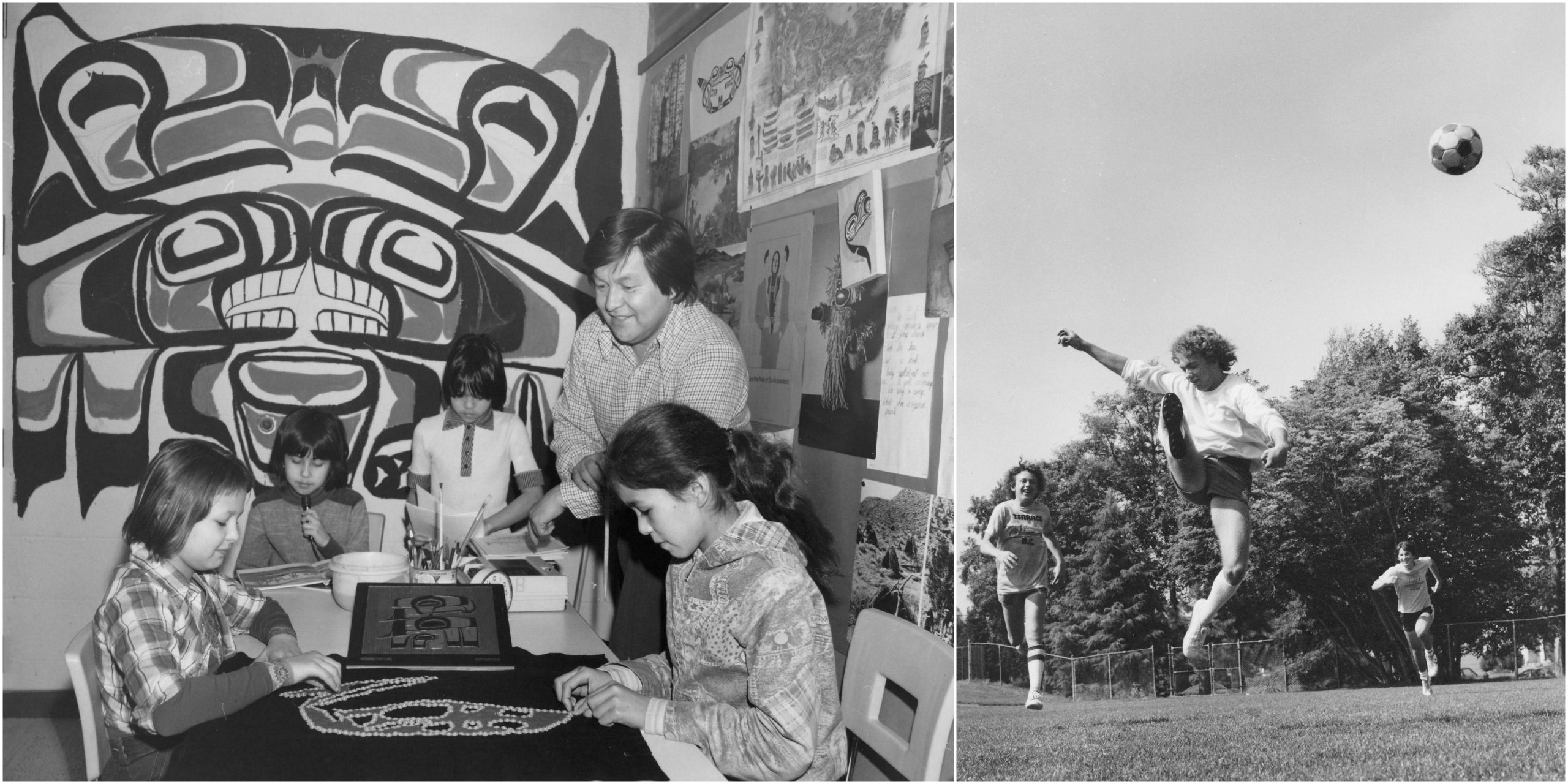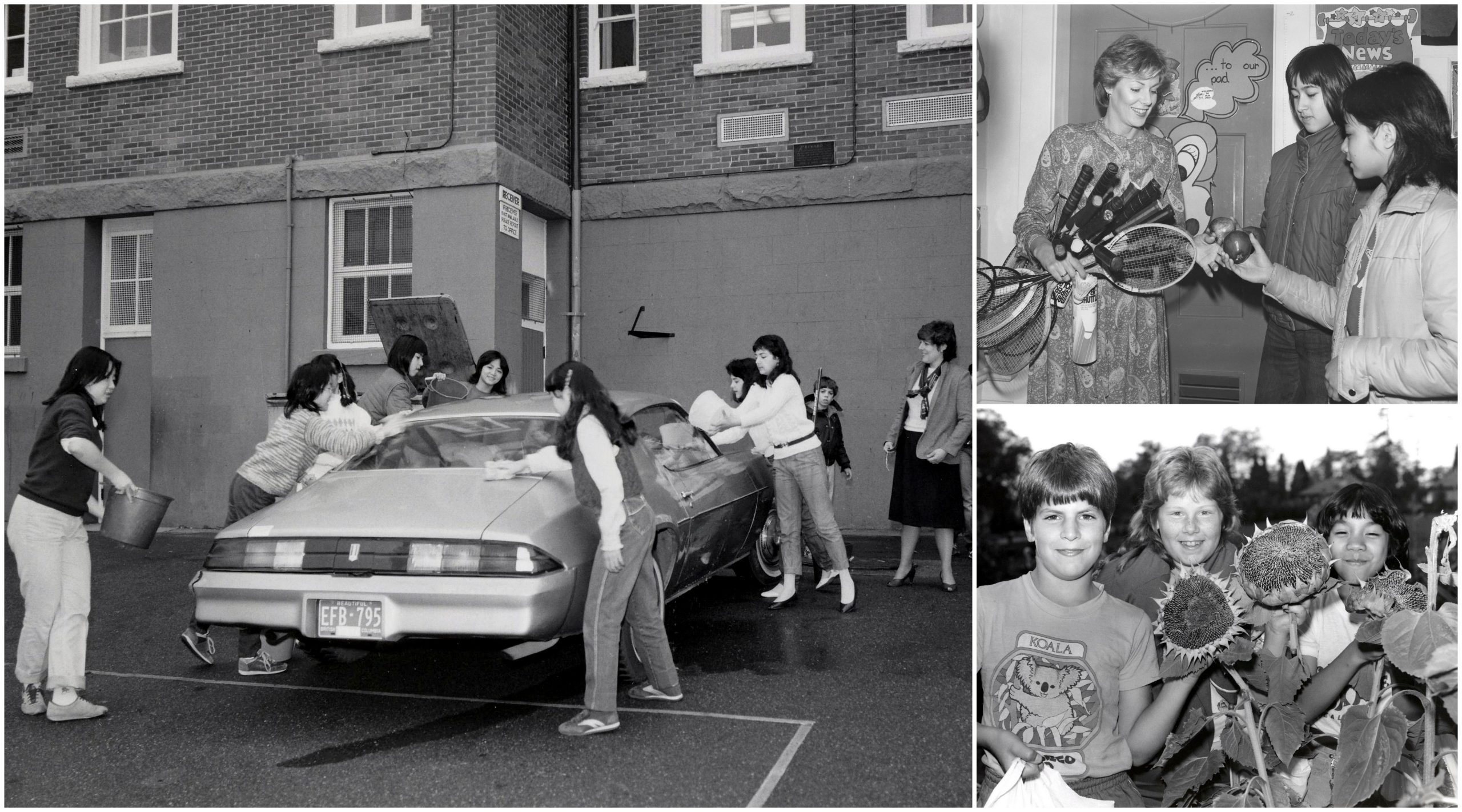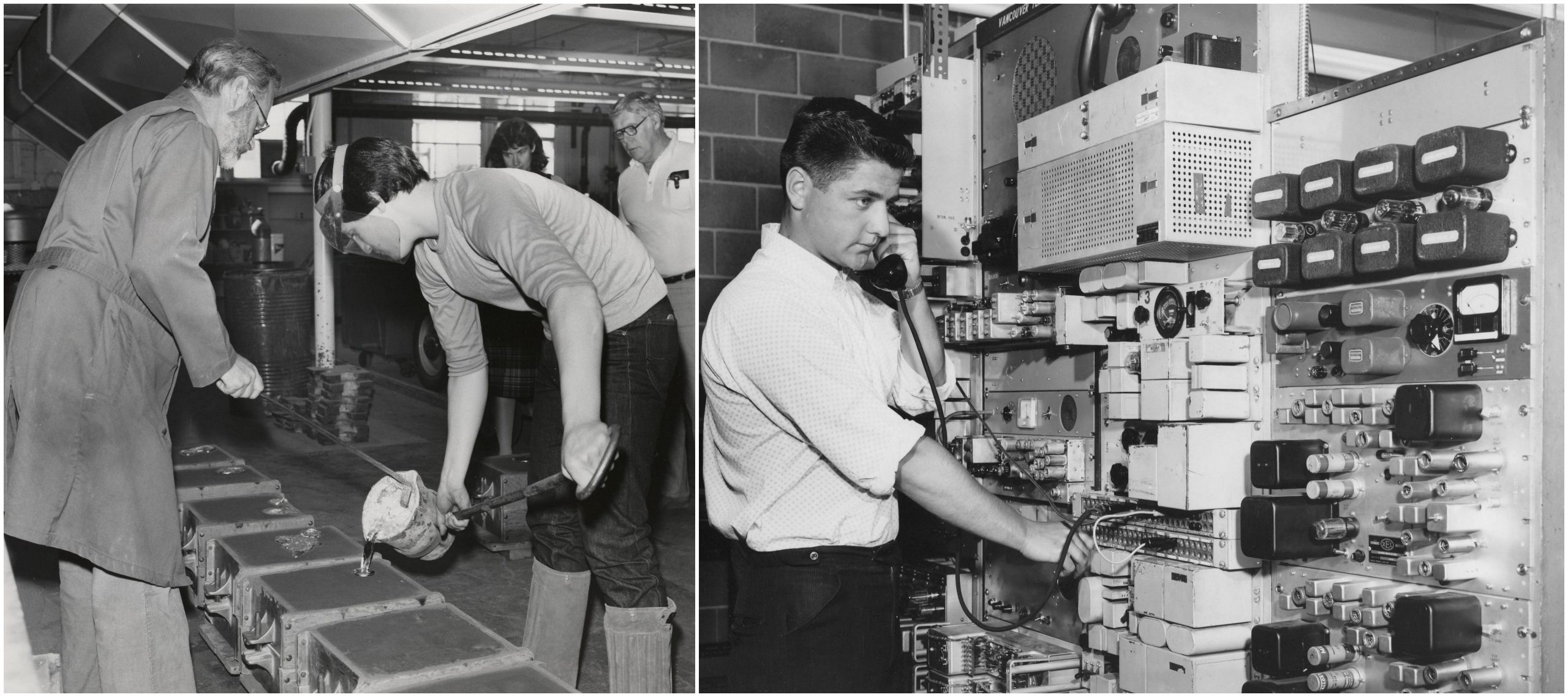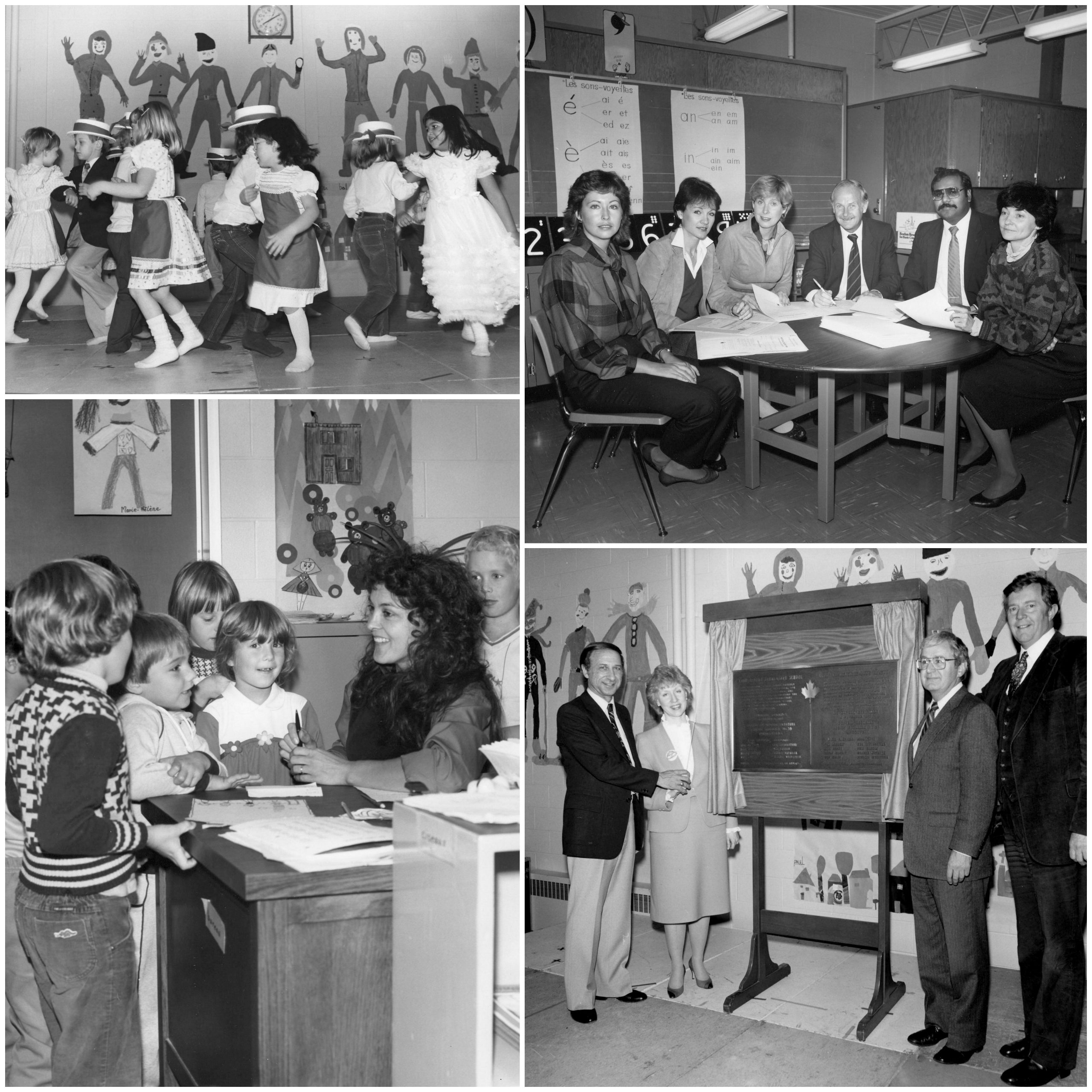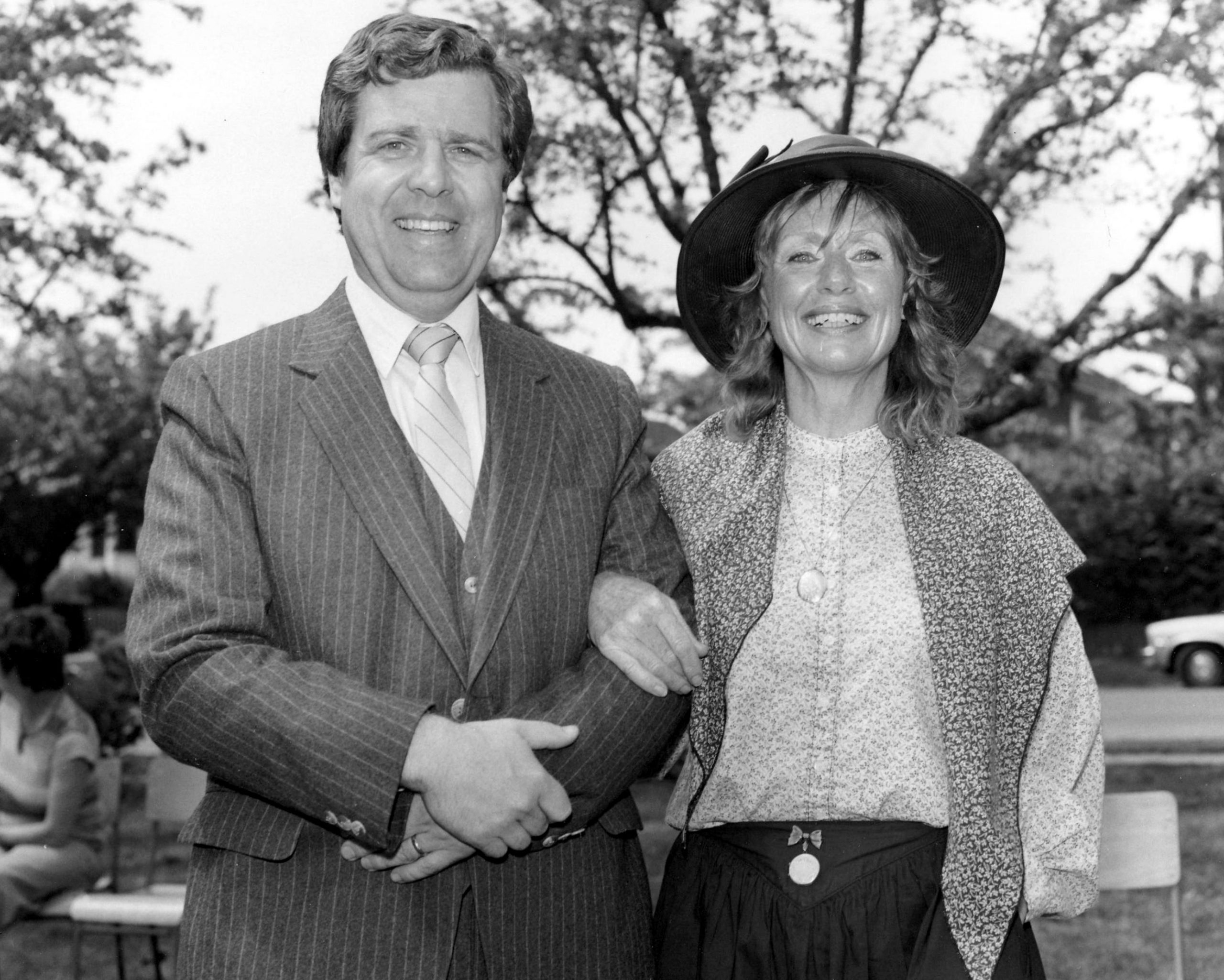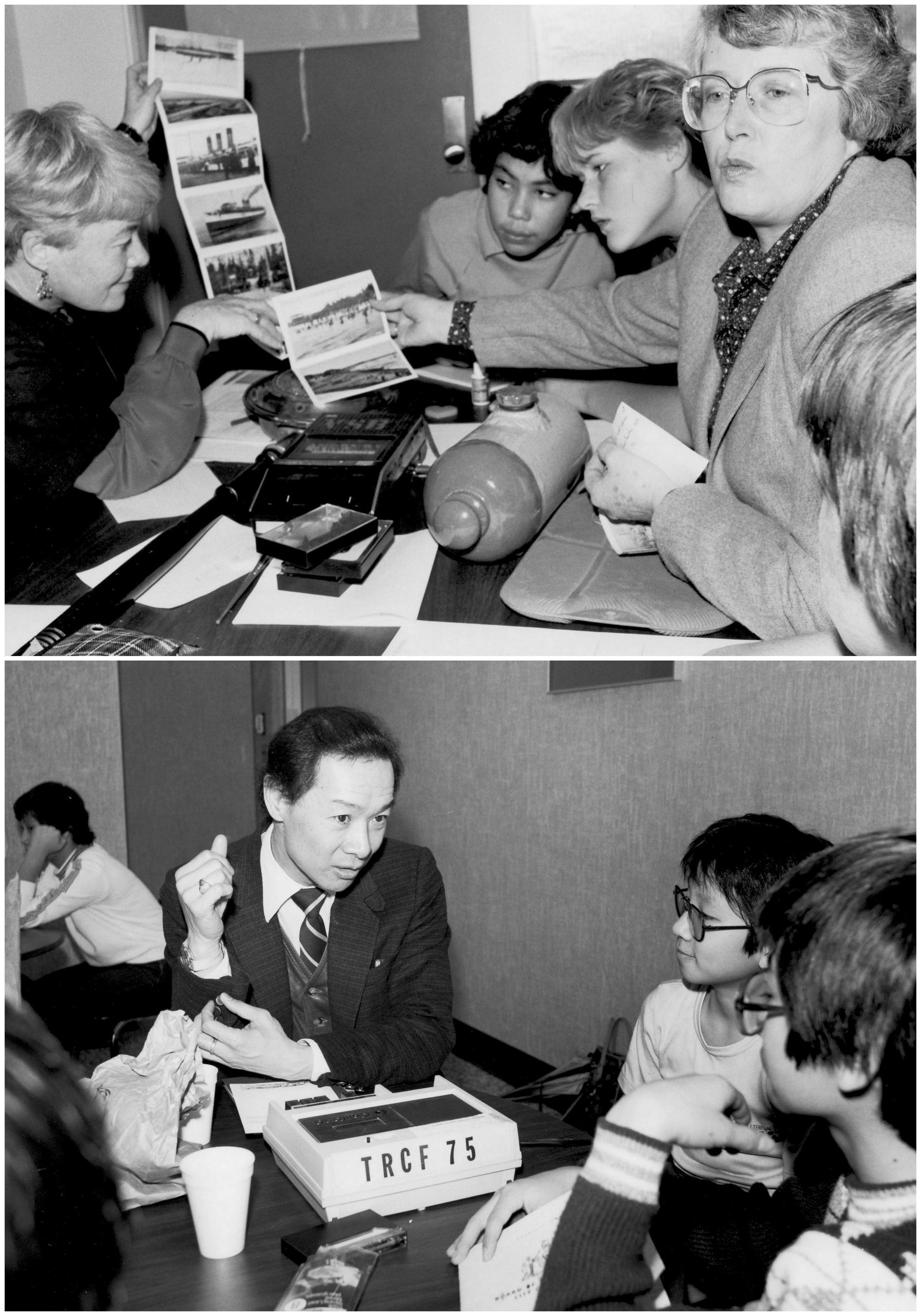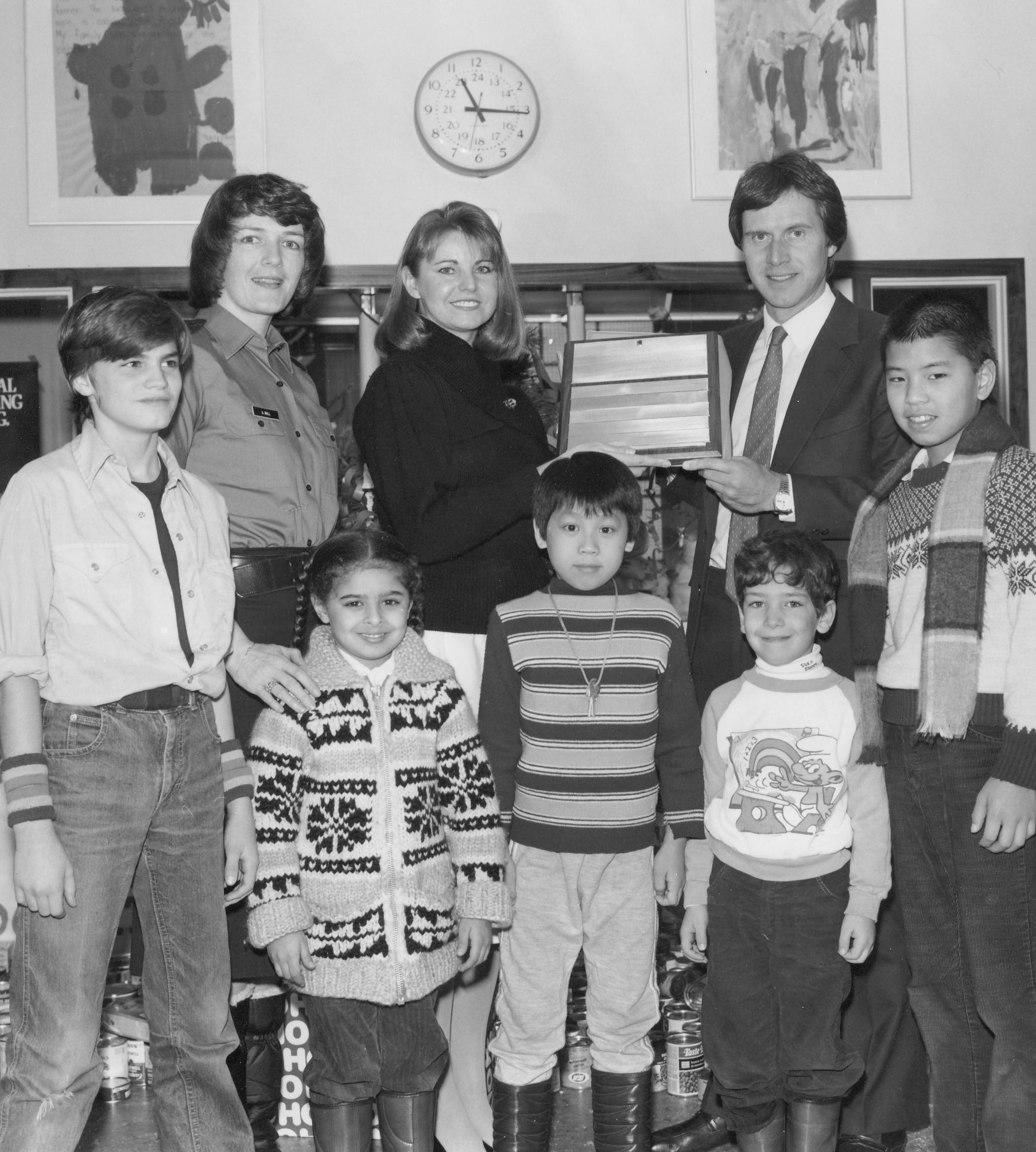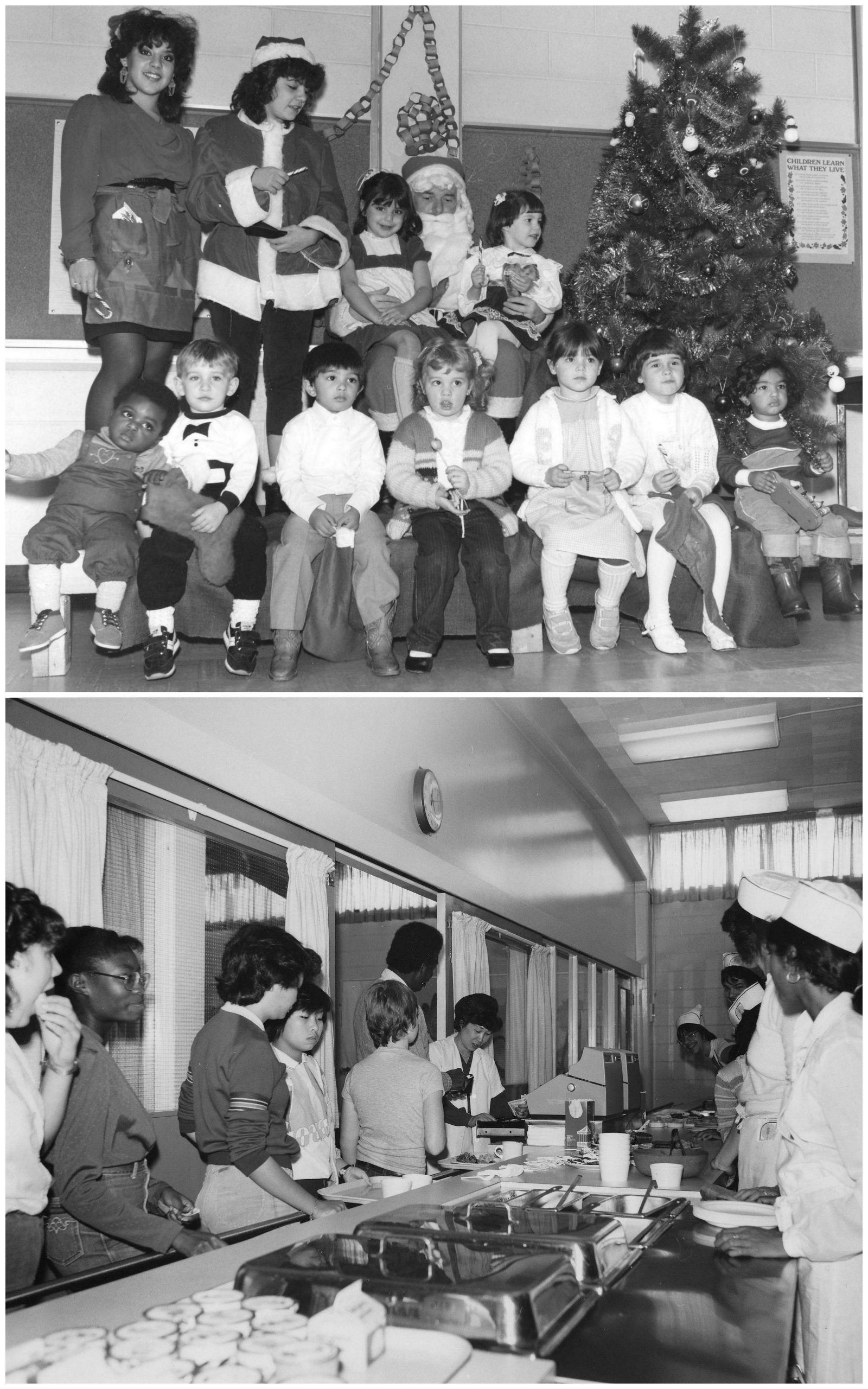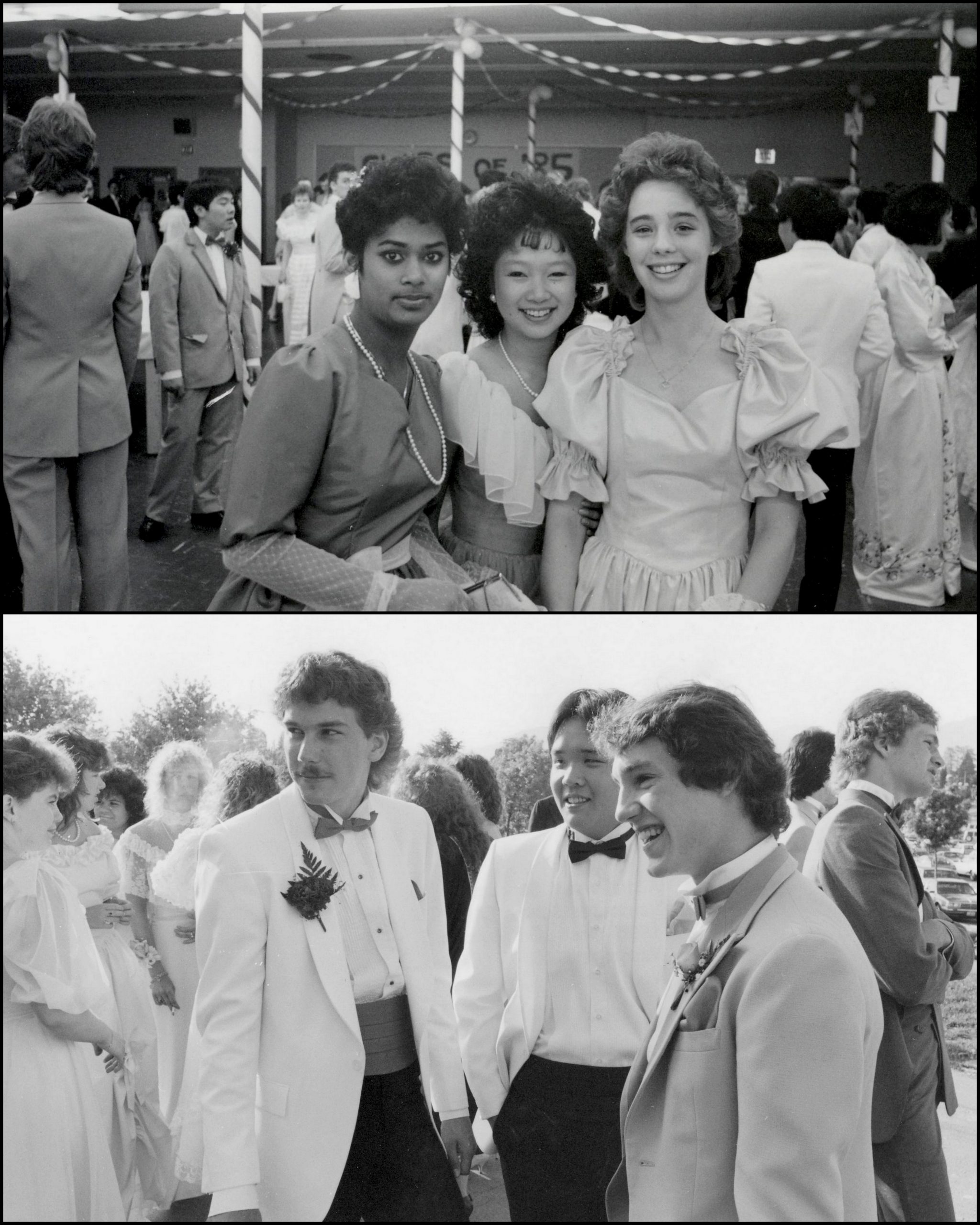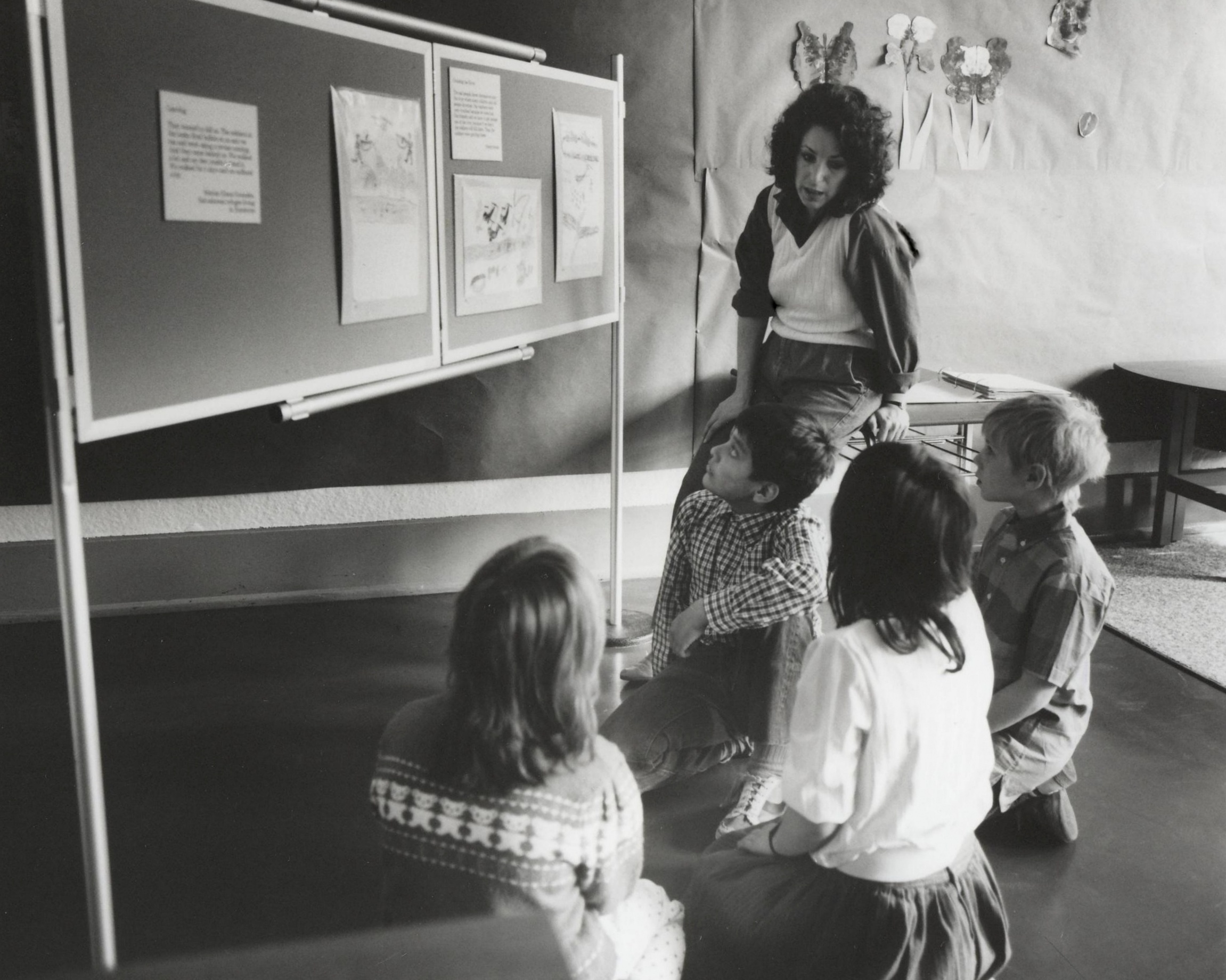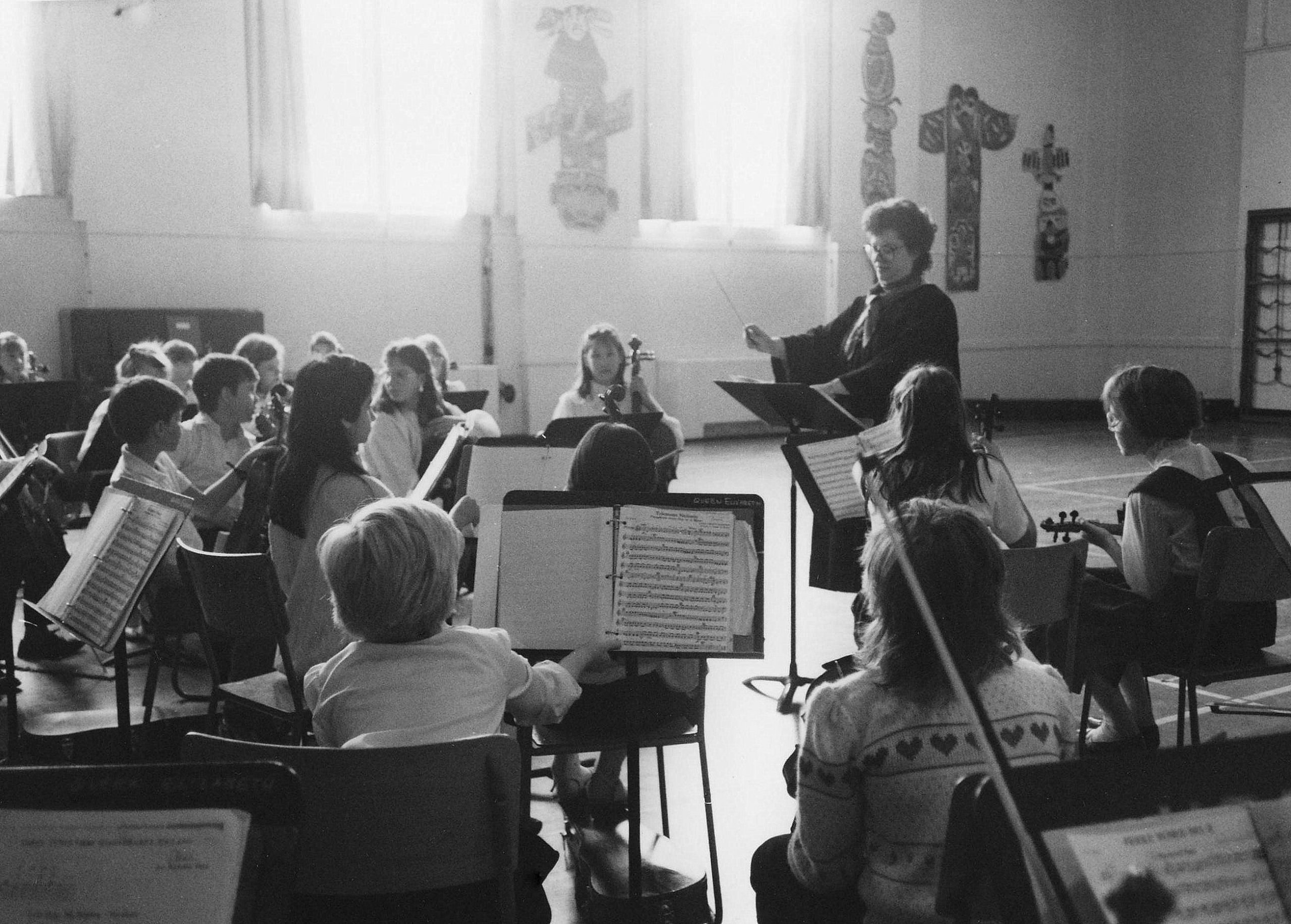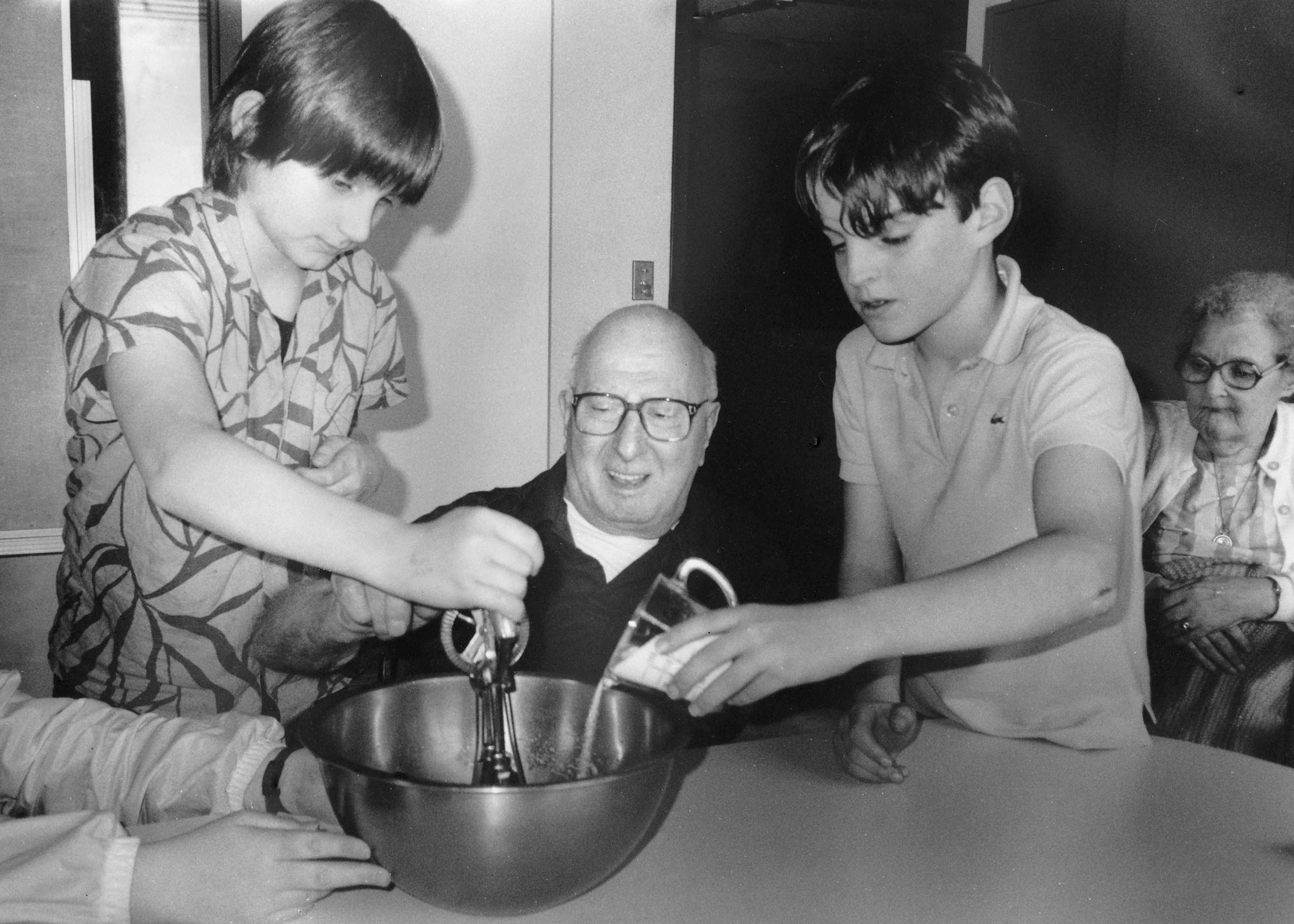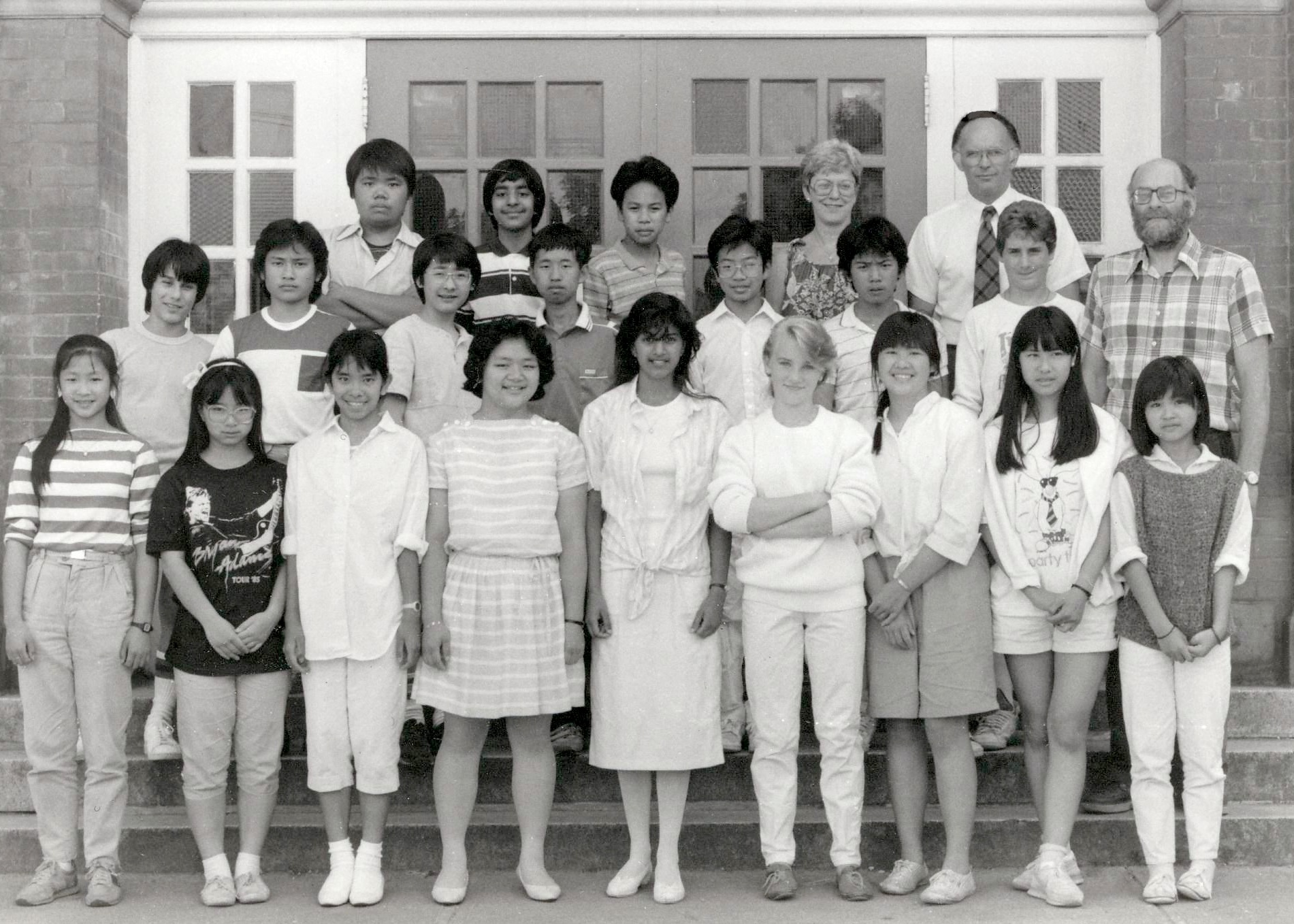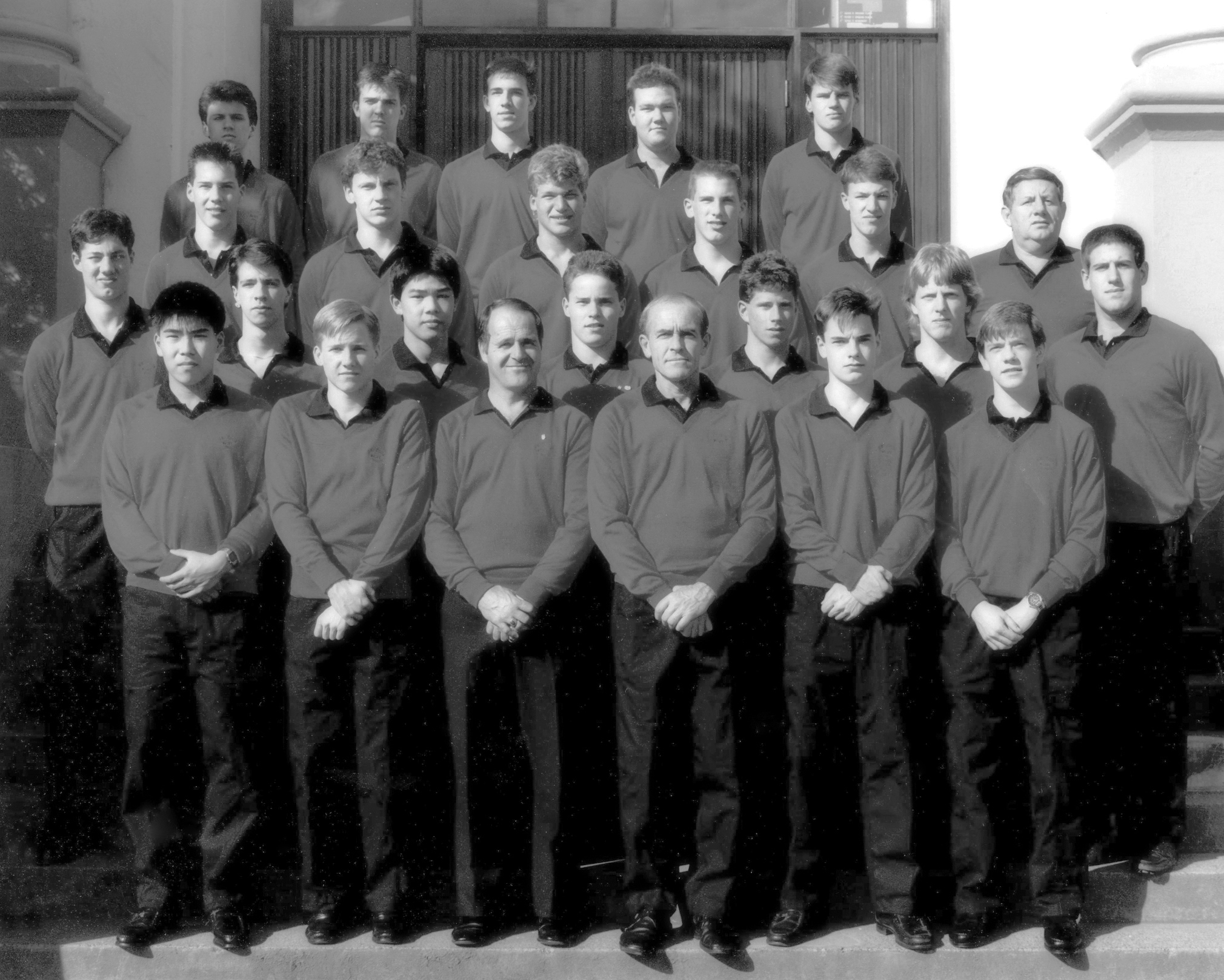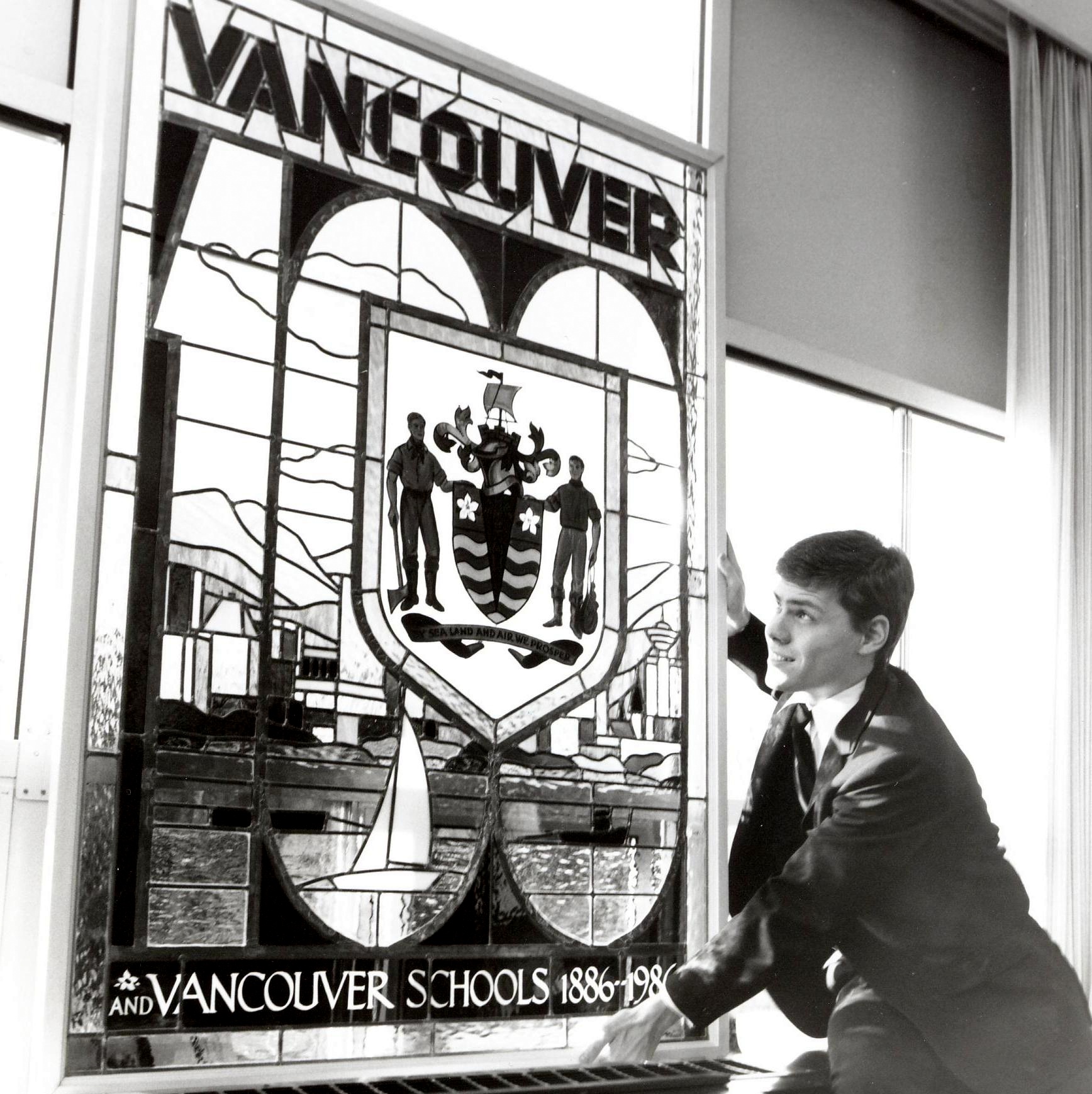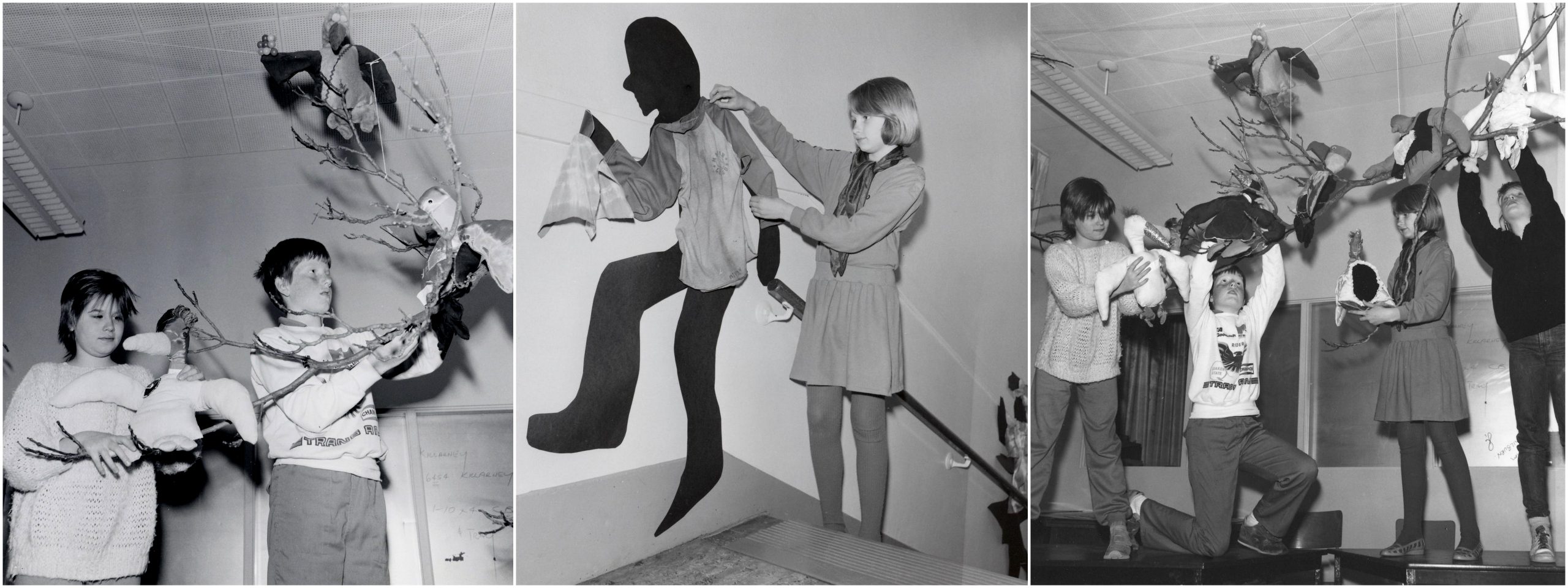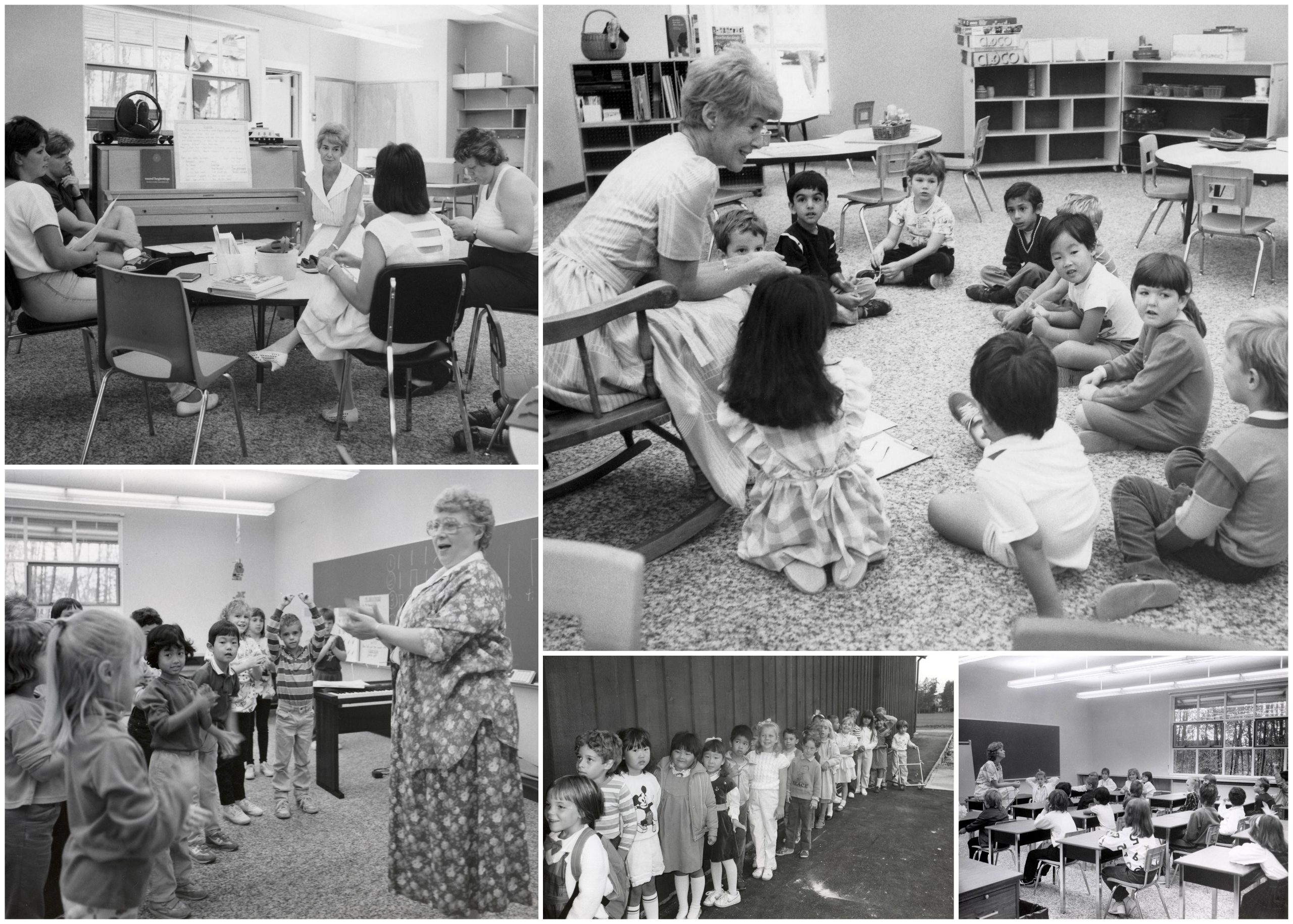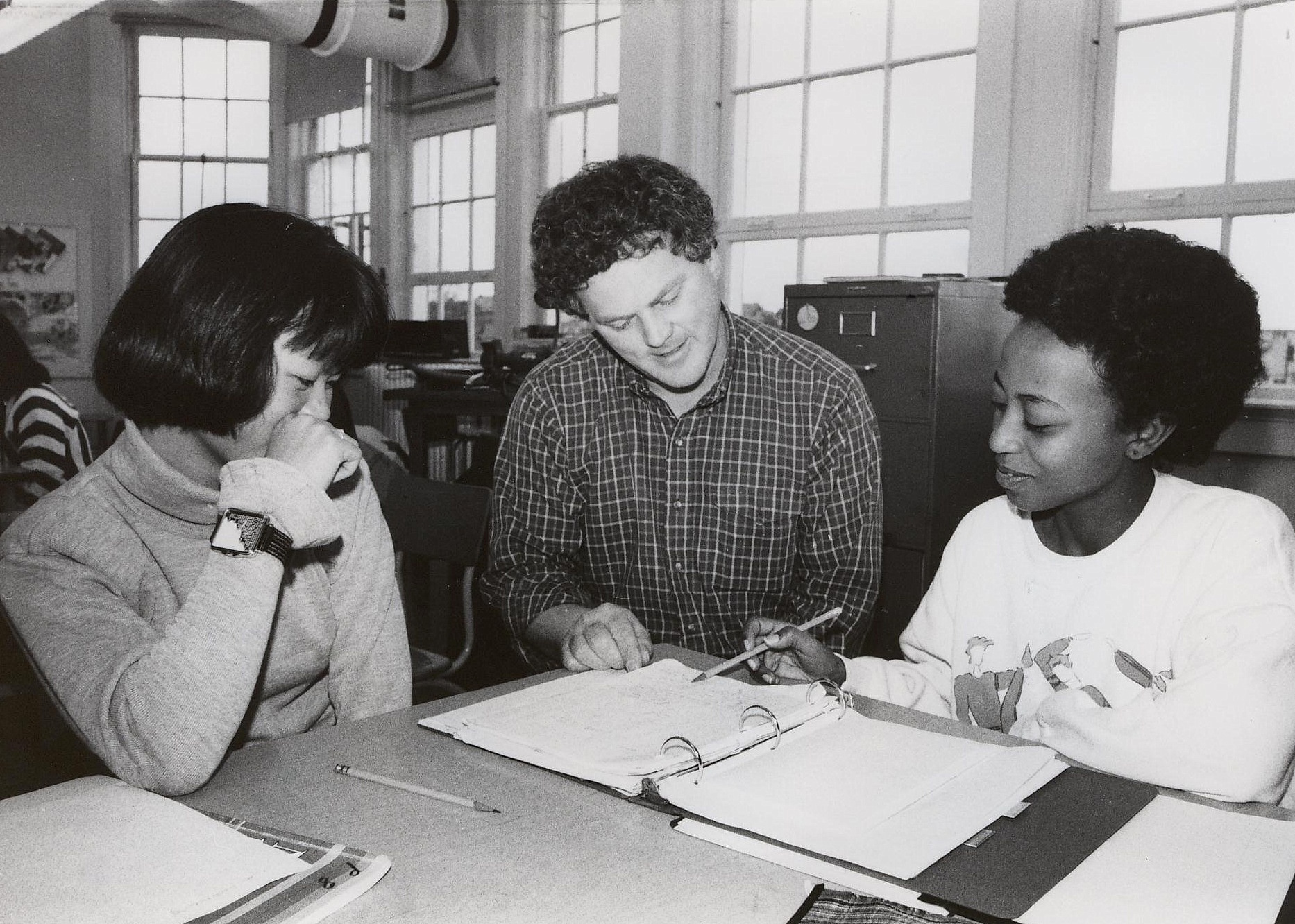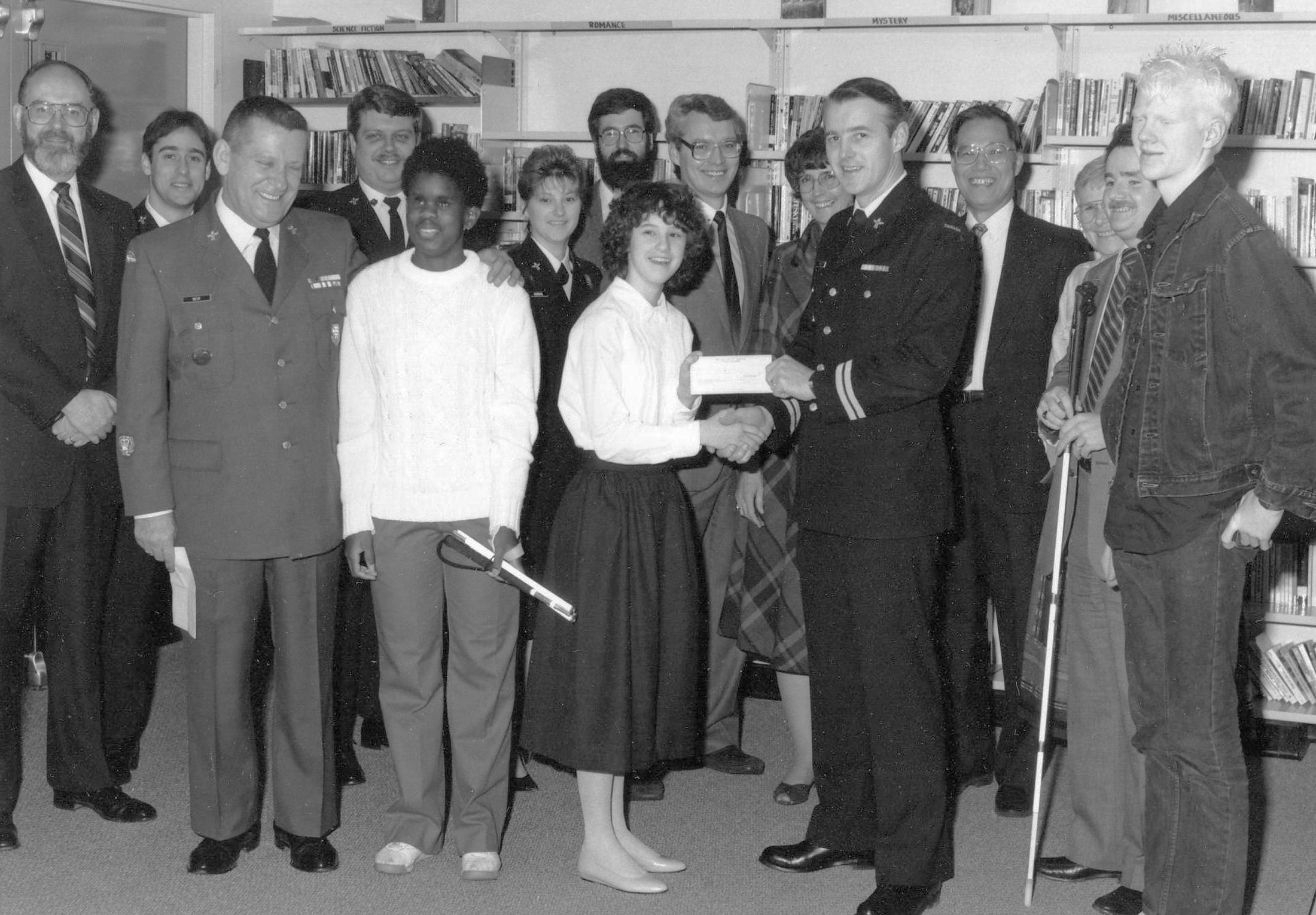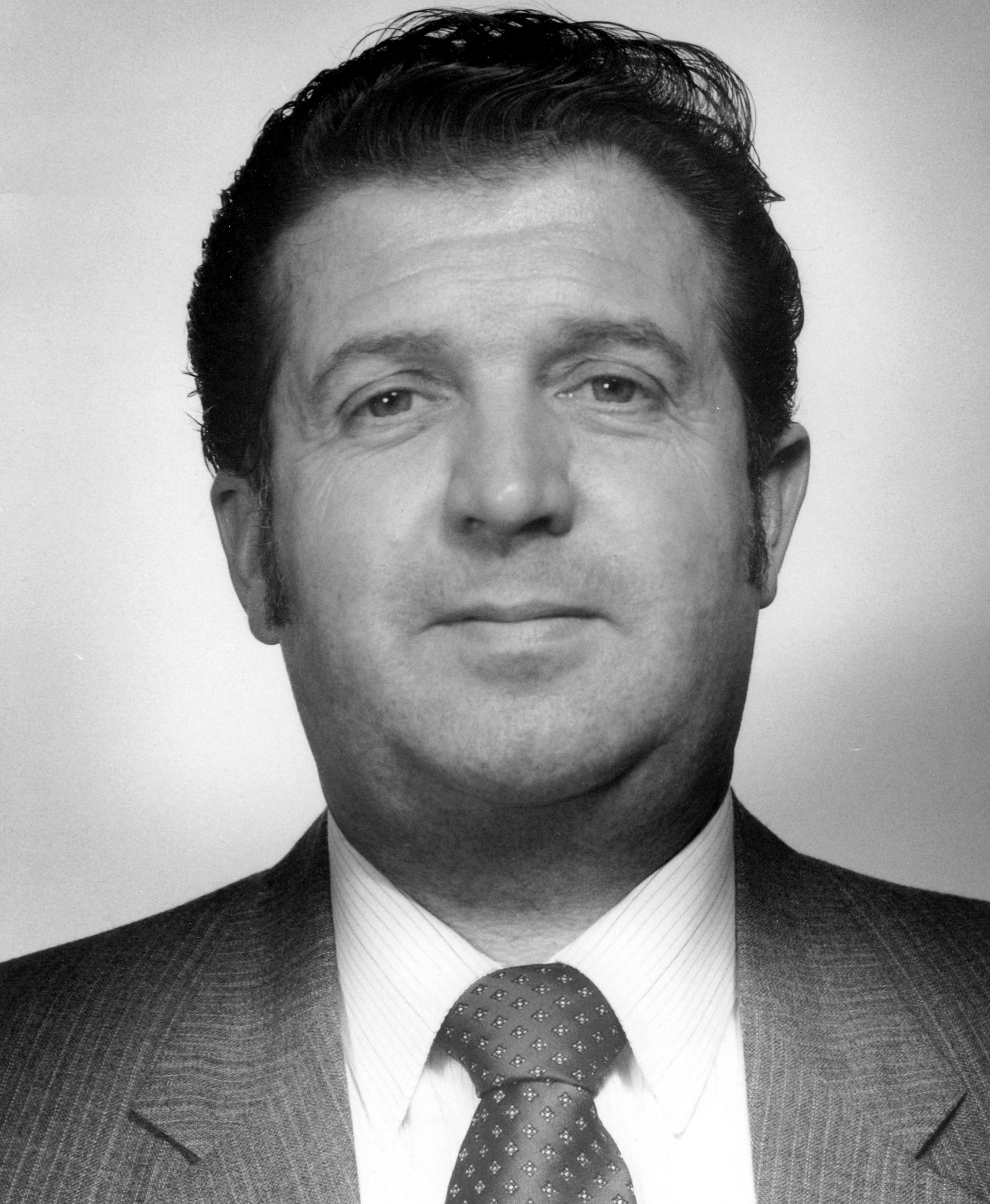Chapter Eight – The Eighties
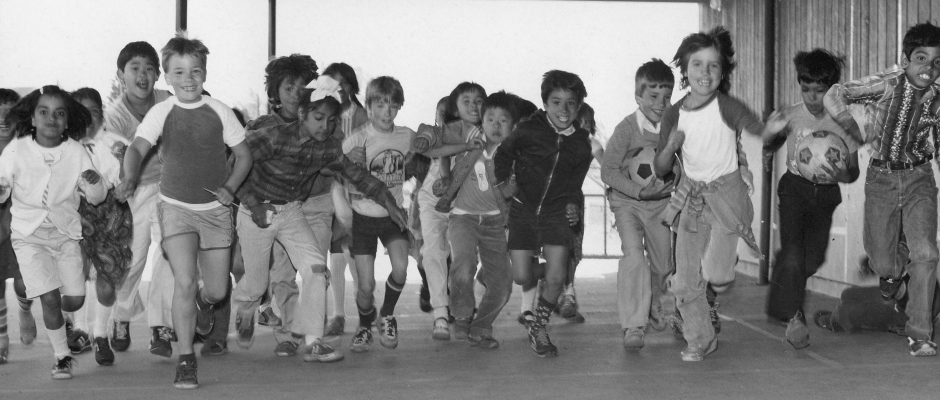
I. INTRODUCTION
Setting the stage – An outline of major events in the World, Canada, British Columbia, and Vancouver.
A. THE WORLD
It can be argued that the most transforming events of the 1980s were the invention of the personal computer and the accompanying software, and the development of mobile phones and the accompanying phone networks.
1980 May 18: Mount St. Helens in Washington State erupts, killing 57 people.
December 8: John Lennon, former member of the Beatles Rock Band, is murdered.
1981 AIDS is recognized by the Centres for Disease Control and Prevention.
The first IBM-Personal Computer is released.
1982 April 2: Argentina invades the Falkland Islands. Britain declares war against Argentina.
November 13: Vietnam War Memorial opens in Washington, D.C.
1983 October 13: The first commercial cell phone call is made.
1984 January 24: Steve Jobs introduces the first Macintosh computer.
October 16: Bishop Desmond Tutu receives the Nobel Peace Prize.
October 31: Two bodyguards assassinate Indian Prime Minister Indira Gandhi.
1985 November 20: Microsoft introduces Windows.
Russian leader Mikhail Gorbachev calls for glasnost and perestroika.
1986 January 28: Space Shuttle Challenger explodes shortly after lift-off.
April 26: Chernobyl nuclear meltdown occurs.
1987 October 4: U.S. and Canada sign free trade agreement.
October 19: U.S. stock market plunges on Black Monday.
DNA first used to convict criminals and exonerate innocent prisoners on death row.
1988 August 20: The Iran-Iraq war ends.
June 24: NASA scientist James Hansen testifies to the U.S. Senate that man-made global warming has begun.
December 01: The first World AIDS Day is held.
1989 March 24: Exxon Valdez spills millions of gallons of oil on Alaskan coastline.
June 4: Student protesters killed in China’s Tiananmen Square.
November 9: The Berlin Wall falls.
B. CANADA
1980 April 12: Terry Fox begins his Marathon of Hope in St. John’s, NL to raise money for cancer research.
Image courtesy of the Terry Fox Foundation
May 20: Québec‘s referendum on “sovereignty-association” is defeated 60% to 40%.
Sept 1: Due to a recurrence of his cancer, Terry Fox ends his run.
1982 March 25: Canada’s Constitution comes home from Great Britain— with a Charter of Rights and Freedoms.
April 17: Canada’s Charter of Rights and Freedoms comes into effect. The Charter guarantees all Canadians fundamental rights, democratic rights, mobility rights, legal rights, equality rights and linguistic rights.
1983 December 23: Jeanne Sauvé is appointed the first female Governor General of Canada.
1984 June 30: John Turner succeeds Prime Minister Pierre Trudeau on his retirement. Turner gambles and calls a new election but loses the election on September 04. Conservative Brian Mulroney wins the election, taking 211 seats in the House of Commons.
1985 March 20: Wheelchair athlete Rick Hansen leaves Vancouver on his around the world Man in Motion tour to raise money for spinal cord research.
June 23: Air India Flight 182, after departing Toronto, crashes into the Atlantic, the victim of a terrorist bomb. All 329 passengers on board are killed.
1988 The Winter Olympics are held in Calgary, Alberta.
1989 January 1: The Canada-U.S. Free Trade Agreement is brought into force. (On December 08, 1993, it is superseded by the North America Free Trade Agreement, which includes Mexico.)
The leaders of Mexico (President Carlos Salinas), the USA (President George H. W. Bush), and Canada (PM Brian Mulroney) shake hands.
December 6: 14 women are killed at Montreal’s Ecole Polytechnique by an anti-feminist man. The massacre was later designated the National Day of Remembrance and Action on Violence Against Women.
Canada’s Immigration Policy during the 1980s.
1981 Census. Of the total population of 24,083,500, 16% were immigrants (i.e. born outside Canada), 51% of immigrants were female, 67% of immigrants were born in Europe, 14% in Asia, 8.5% in North or Central America, 4.5% in the Caribbean, and 2.7% in Africa.
1985 The Supreme Court of Canada rendered the Singh decision, in which it recognized that refugee claimants are entitled to fundamental justice. The court ruled that this would normally require an oral hearing in the refugee status determination process.
1987 Bill C-55 was tabled. This bill completely revised the refugee determination system, creating the Immigration and Refugee Board. It proposed a two-stage process, with a “credible basis” screening. It also provided for refugee claimants to be excluded from the process if they had passed through a “safe third country”. The credible basis test and the safe third country rule were among the aspects of the bill that were opposed by refugee advocates.
C. BRITISH COLUMBIA
The Social Credit Party, which had dominated BC politics since 1952, continued its rule of British Columbia during the 1980s. Bill Bennett, the son of WAC Bennett, had been elected to power in 1975. He won re-election in 1979 and 1983. In 1986, Bill Vander Zalm, former BC Minister of Education, led the Social Credit Party to re-election in 1986. The Social Credit Party remained in power until 1991, when it was defeated by the New Democratic Party led by Mike Harcourt.
During the early 1980s, the Bennett Government pursued a number of ambitious projects, including the construction of the Sky Train system in Greater Vancouver, and the building of the Coquihalla Highway linking Vancouver to the BC Interior. It also took a leading role in winning a world’s fair, Expo 86, for Vancouver.
The early 1980s also saw British Columbia enter a serious economic recession. In response, the Bennett government announced a new programme to curtail government spending. The programme, known as Restraint, provoked opposition and great hostility among organized labour groups, including provincial employee unions and the British Columbia Teachers Federation.
Victoria, B.C. – Opponents of the Socred Government’s austerity program participate in a mass protest.
In 1983, public school teachers and school support staff took part in a 3-day strike to protest reductions in education funding. The protest was part of a province-wide labour opposition movement known as the Solidarity Coalition, consisting of organized labour and community groups, with the British Columbia Federation of Labour forming a separate organization of unions.
Tens of thousands participated in protests and many felt a general strike would result unless the government backed down from its restraint policies. The movement collapsed after an apparent deal was struck by union leader and IWA president, Jack Munro and Premier Bennett.
Resistance to the Restraint Program came from other quarters. Dr Dante Lupini, Superintendent of the Vancouver School Board, was also President of the BC School Superintendents Association. In this capacity, he also led opposition to the Restraint Program.
Dr Lupini, VSB Superintendent (right), Dr. Pauline Weinstein, VSB Chair (centre), and Alick Patterson, VSB Secretary Treasurer (left) conduct a news conference (1986).
B.C. Ministry of Education
1984 Province-wide Grade 12 examinations are re-introduced. (The exams had been scrapped in 1973.)
1986 The Pacific Vocational Institute and the British Columbia Institute of Technology are merged. The new institution becomes the flagship of trades and technological training in British Columbia.
1987 A Royal Commission on Education is appointed under the direction of Barry Sullivan, Q.C.
The British Columbia College of Teachers is created under the Teaching Professional Act to establish and promote standards for the education, competence, and professional competence of its members.
1988 The Sullivan Royal Commission Report is published. The provincial government accepts nearly all of its 83 recommendations, including a blueprint for an innovative curriculum program known as Year 2000.
1989 Following recommendations from the Sullivan Royal Commission and changes to the Public School Act, Parent Advisory Councils are organized at every school. PACs take up some of the school-advocacy campaigns formerly conducted by Parent Teachers Associations.
D. VANCOUVER
EXPO 86 – World in Motion – World in touch (May 02 – October 13)
September 21, 1980 The Stanley Park Seawall is completed after five decades of construction. James “Jimmy” Cunningham, a master mason, dedicated his life to seeing this project through to the end.
June 19, 1983 BC Place officially opens. The first ever event at BC Place occurs the next day with a match between the Vancouver Whitecaps and the Seattle Sounders. The ‘Caps beat their arch-rivals 2-1 in front of a crowd of 60,342.
December 11, 1985 Sky Train, a light rapid transit system, begins operation. The one line runs from Waterfront Station to New Westminster Station.
May – Oct., 1986 Vancouver celebrates its centenary by hosting Expo 86, World in Motion – World in Touch. Prime Minister Brian Mulroney, Prince Charles and Princess Diana officially open the fair on May 2. Over 22 million visitors attend the Fair. The Chair of the Organizing Committee is Jimmy Pattison,
Expo 86 Corp was established as a nonprofit agency to plan and operate the fair. The president and CEO of this organization is Jimmy Pattison, a 1949 graduate of John Oliver High School.
II. THE VANCOUVER SCHOOL DISTRICT
The history of the Vancouver School District during the 1980s is set out below, year by year, in photographs and excerpts from articles published in The Vancouver Sun and the Vancouver Province newspapers.
Why this approach? During the decade, the Vancouver School Board ceased publishing formal Annual Reports for the general public, possibly as a cost saving measure.
You will see that no photos are provided for the years 1988 and 1989. This is due to the fact that the photography division of the Media Services Department was shut down as a cost saving measure.
HEADLINE – Disturbed boy must seek help outside province The Vancouver Sun; Friday May 16, 1980
Excerpt:
A Vancouver school board official says there are roughly 50 to 75 emotionally disturbed children like Aaron still in the city’s schools. A child psychiatrist estimates that B.C. provides no effective treatment for up to 10 per cent of children whose mental illness has been detected. And Dave Buckley, director of probation services for the West side of Vancouver, says there are plenty of other emotionally disturbed children like Aaron. “It’s nothing new. It’s like rediscovering the wheel all the time.” Buckley said each of his five probation officers usually has four or five cases like Aaron’s, such as:
- The 16-year-old boy who was sent to Vancouver from a northern city for a psychiatric assessment after he burned down a school and discharged a rifle in a playground. The boy was found to be clearly psychotic, but six months elapsed before he got treatment. While human resources officials argued over which region held responsibility for him and he waited for an opening at a treatment centre, he sat in Willingdon youth detention centre in Burnaby….
- The 16-year-old boy, charged with assaulting his mother, was found by psychiatrists to be “very ill. After three months at a group home waiting for an opening at The Maples treatment centre, child care officials decided he was doing well there and cancelled the placement at The Maples. His probation officer, visiting the group home on a hot summer day, found him sitting up against the kitchen stove, which had been turned on high, and staring into the open oven. It took four more months to get him into The Maples. Meanwhile, he was bounced between the group home, Willingdon and a hospital ward.
As they discussed these cases and that of Aaron, the probation officers, the school board official, the judge and psychiatrist showed flashes of anger and frustration. Colin McDougall, coordinator of counselling services for the Vancouver school board, called it “piecemeal treatment” — a little psychiatric counselling, a dose of social work, a group home now and then and maybe one year in a treatment centre.
“The kid gets one Band-aid after another until he’s 15 and a disaster area,” McDougall said.
HEADLINE – Comparing Schools is a Sensitive Subject for those in the know The Vancouver Sun; Oct 01, 1980
Excerpt:
Let’s compare schools on the east side with schools on the west side. Let’s see how east-side students perform, compared with their west-side counterparts. It’s easy, really. Just take the results of general performance in Vancouver schools, divide those results into east and west, and voila, you have a comparison. Trouble is, the people who have those results won’t release them. They are afraid, they say, that the results would be compared “unfairly.” Those results are open to interpretation, they say, and could be interpreted wrongly. The word used most often is “unfortunate.” It would be “unfortunate” if that comparison were used as ammunition against a group or a person. Unfortunate for whom: the students or the teachers? Or the schools? Or the elected school board, which administers the $127 million Vancouver school board budget? We may never know.
Results of those studies could be obtained from the University of B.C., at the Vancouver school board offices, at the Ministry of Education in Victoria, and at individual schools. None of these taxpayer-funded organizations will give them up, even when it is explained that the results would be weighed as fairly as possible with the important touchstones of socio-economic backgrounds, cultural values and expectations of the community.
So, Johnny’s parents, who wonder whether he should attend Britannia because it’s in the neighborhood, can’t compare the track record of that school with others on the west side. Conversely, David’s parents don’t know how good Point Grey really is, despite the relatively affluent family backgrounds of its students. One thing is known: East-side schools concentrate more on industrial education, while west-side schools promote academic programs, leading students toward university.
School trustee Karl Erdman says that those differences are responses to the different needs of the communities. The expectations of Eastside residents are often not the same as those of the west side, and the school programs are designed to meet those expectations.
MacDonald Elementary
L’Ecole Bilingue
Teachers’ Professional Development Day
Laurier Elementary School
David Thompson Secondary
Emily Carr Elementary
Oakridge Centre
Secord Elementary
‘Secretaries Day’ Event
HEADLINE – BCTF considers strike in wake of layoff notices. The Vancouver Sun, Sept 15, 1982
Excerpt:
The B.C. Teachers’ Federation is considering strike action as retaliation for proposed layoffs of teachers, according to federation president Larry Kuehn. Kuehn said a special Saturday meeting of the federation’s 79 local associations will be asked to vote on whether teachers will walk out if other teachers are dismissed and will also be asked to ratify a “no pay, no work” union position. The 115-member representative assembly will vote in the wake of threatened strike action by teachers in at least two school districts. The Surrey school board called an emergency meeting for today after the Surrey teachers’ association voted Tuesday night to strike if anyone is laid off. The Langley teachers’ association agreed by an overwhelming majority Monday to withdraw services rather than allow any of its members to be terminated under the provincial government’s restraint program.
Some school boards have already begun mass layoffs to comply with the provincial government’s demands to cut spending. A total of 117 teachers in Castlegar, South Okanagan and Abbotsford have received termination notices to take effect in October. The Castlegar and South Okanagan teachers’ associations filed action in B.C. Supreme Court Monday claiming the terminations are illegal under the School Act. Abbotsford teachers have also initiated legal action in a letter to the school board that demands cancellation of termination notices to 66 teachers. Langley association president Don Bennett said the government’s actions are “disgusting and immoral”. The Langley teachers voted not to re-open their 1982 contract with the Langley school board nor to agree to any lowering of the quality of education, and to urge the school board to withhold its plan to comply with the province’s restraint program pending the outcome of the Vancouver school board’s court challenge. Kuehn said terminations in Castlegar and Abbotsford were made without regard for seniority. In Castlegar, programs were cut including art, music, drama, library services and industrial education. In Abbotsford, there seemed to be no pattern, he said, with some but not all library and elementary physical education teaching jobs cut. “The pattern was such that one has to be suspicious of (the board) going through a list of people they wanted to get rid of for some reason,” Kuehn said. Replied Abbotsford school superintendent Harry Sayers: “I think the BCTF would impugn some such motive in the situation.”
Note: The Vancouver School Board’s court challenge mentioned in the preceding article refers to a court case heard on September 14, 1982, where the VSB lawyer, David Roberts, argued that the B.C. government must “pay up” – by law – once a school district budget is approved, and property owners are notified of the tax rate.
Point Grey Secondary
False Creek Elementary
Eric Hamber Secondary
Lord Nelson Elementary
Lord Nelson Elementary
Oppenheimer Elementary
Carnarvon Elementary
University Hill Secondary
Simon Fraser Elementary – last day of the school year (June 1982)
HEADLINE – Weinstein hits direct approach to VanderZalm The Province, November 16, 1982
By Jan O’Brian, Province Municipal Reporter
Excerpt:
Civic Non-Partisan Association (NPA) school board candidates acted in a “really underhanded” way by taking a financial restraint plan directly to Education Minister Bill Vander Zalm, Vancouver school board chairman Pauline Weinstein of the Committee of Progressive Electors (COPE) said Monday. Five NPA candidates, including incumbent trustee Kim Campbell, announced at a press conference that they are seeking Vander Zalm’s approval of their restraint program before Saturday’s election. The Vancouver school board faces a $10 million shortfall in its 1983 budget. The board has been lobbying for a six percent increase from the provincial government to meet the shortfall.
The NPA proposes to overcome most of the shortfall by taking $4.5 million out of the board’s capital surplus fund, created from the sale of school board property, and then asking the provincial government for a matching contribution of $4.5 million. In addition, the NPA wants the provincial government to throw in another $400,000 to increase the school supplies’ budget. In effect, the NPA candidates are asking the provincial government to finance a three percent increase in the 1983 budget.
“I would say that totally undermines the attempt of the board to negotiate in good faith with the minister,” said Weinstein, a member of the Committee of Progressive Electors’ (COPE) majority on the board. “If they do get a hearing that means the minister is dealing with a group that is not an elected group,” she added. “I would deem it rather unethical on the part of the trustees involved in that negotiating procedure.” She said Vander Zalm has indicated he would respond to the board once wage negotiations with teachers are finished. Vander Zalm could not be reached for comment.
NPA candidate Graeme Waymark said the NPA’s plan was passed on to Vander Zalm. “It has been confirmed that he received it and we have asked for a response before the end of the week,” he said. “We believe we’re interpreting what the provincial government wants. We would be surprised if this isn’t the sort of cooperative plan that he’s (Vander Zalm’s) looking for.” Waymark and the other NPA candidates accused COPE trustees of using confrontation tactics with the provincial government and threatening massive layoffs. NPA candidate Ken Denike, who is credited with creating the NPA proposal, said the NPA plan would avoid layoffs and a rollback of 1982 wages.
Kerrisdale Annex
Fleming Elementary
Kitsilano Secondary
Simon Fraser Elementary
HEADLINE – Camp breaks racism barriers The Vancouver Sun, October 13, 1983
Excerpt:
“It’s going to take a long time to undo the wrong, but we’re going to do our best to stop racism.” Britannia secondary student Bill Tso won affectionate thumps on the back and a hearty round of applause when he made that vow Wednesday at a gathering of those who participated in a multicultural and race relations leadership camp last week. The 58 students, aged 14 to 17, and 13 teachers, representing nine Vancouver high schools, spoke of how the five days at Camp Elphinstone challenged their preconceptions and stereotypes. “Before I went to this camp I had several notions I thought were absolutely true about the world,” said Yashi Spong of University Hill School. “I thought there were maybe five or six different types of people. That wasn’t necessarily based on race, but on things like how they dressed or how they smoked. “Then I went to camp and met all these really right-on people. It changed me,” Spong said.
The students said they learned how human nature can transcend differences of race, religion, culture and class. “We learned that we’re all really the same. We share the same problems, no matter what our colour or race. We’re all just earthlings and we should treat each other equally,” said Templeton student Kim Cheng. “It used to be that sometimes when I got with a certain race I’d get kind of uneasy feelings. I really wanted to deal with those feelings and I think we did,” said University Hill student Phillip Djwa. Liz St. Rose from Vancouver Technical agreed: “We’ve broken through that racism because we all know how much it hurts. But we never worried about that (being hurt) at camp.”
The students also explored their cultural roots and the roots of their own prejudices. “We came to realize how it was often our parents who pushed us into racist feelings,” said Susan Chang, from Windermere. “Since we can’t correct that, we need more kids involved in things like this camp so we, as parents, won’t do the same thing.” Lisa Fong, from Eric Hamber, also said more students should have the opportunity to explore the concept of multiculturalism. “We don’t learn anything about it at school. I think if the government is really serious about fighting racism, it should give us more money and more materials.
The Vancouver school board’s philosophy of the camp has three premises:
- Negative behaviour toward other groups is often based upon ignorance and misunderstanding;
- The more you interact positively with other groups, the more you are likely to be personally enriched by that experience;
- The energy of young people directed toward positive activity is a powerful force for establishing more humane and accepting attitudes. Sam Fillipoff, VSB consultant on race relations and multicultural education, said the camp cost about $12,000. It was partly funded by grants made last year by the secretary of state and the now-defunct B.C. human rights commission. The balance came from the Vancouver Foundation and the school board. “The big payoff is going to be the carryover in their own schools and in the community,” Fillipoff said.
Moberly Elementary
Moberly Elementary
Britannia Secondary
The Vancouver Sun, November 20, 1984
Excerpt from news story:
Pauline Weinstein, VSB School Board Chair, estimated that if salary increases, increments and inflation were taken into account, the $5.3 million cut would be more like $14 million. But VSB Secretary Treasurer, Alick Patterson, said in an interview later that higher salaries and inflation would amount to about $6 million a year, so a more accurate figure would be $11.3 million. Under the previous required cuts of $7.1 million, he said, the addition of inflation and salary hikes would have brought the total up to $13.1 million. Patterson said, under the new figures, the board will have to cut $8 million over the next 18 months — $2.7 million in an initial six-month budget, and then $5.3 million in its June-to-July 1985-86 school year budget. (The figures cover 18 months because school boards’ budget years are being switched from the calendar year to the school year. Boards will actually prepare two budgets over the next 18 months: One from January to June of 1985, and one from June, 1985, to July, 1986.)
Patterson said a further $800,000 will have to be cut after July 1986, effectively extending the restraint program into the 1986-87 school year. (When the three-year restraint program was announced in the summer of 1983, it was to cover only 1984, ’85 and ’86.)
General Wolfe Elementary
Vancouver Technical
École Anne-Hébert
David Lloyd George Elementary
Charles Dickens Elementary
Moberly Elementary
Windermere Secondary
HEADLINE – Heinrich fires school board COPE reels; NPA fears backlash. The Vancouver Sun, May 06, 1985
Excerpt:
Education Minister Jack Heinrich announced today the provincial government has taken over the Vancouver School Board and fired the nine elected trustees. “The law has been violated and it is my job to ensure that the law is complied with,” Heinrich said in Vancouver. He announced he has appointed Al Stables, former Victoria school superintendent, as Official Trustee of the Vancouver district indefinitely. “As of 8 o’clock this morning, he has been appointed the official trustee of the Vancouver School Board,” Heinrich said. “The effect of his appointment is such that he now is the official trustee and the sole trustee that the existing board at this time is being served with a letter that has been signed by me, advising of the appointment.”
He said he waited until today to take this action after having twice extended the deadline “to give the Vancouver School Board additional time to reconsider its unlawful actions.” But he said after it became clear that the Vancouver board had no intention of complying and after having been requested by the city of Vancouver to take immediate action to ensure the smooth functioning of municipal tax collection, the government had no choice but to take the action. Heinrich said that up until today, “I believed that as elected officials, members of the Vancouver board would reconsider their illegal actions and realize that their obligation to the taxpayers, parents and children of Vancouver is paramount.”
The minister said that the VSB “has known from the outset that they are breaking the law, that they are putting the municipality into an impossible situation and that they are risking a massive breakdown of services within the school system.” “I think it is important that the rule of law must be obeyed. If people are not happy with the laws — the way they are structured —there is a correct and proper way in which to bring about change,” he said. “In taking this action, I wish to reassure parents that the smooth operation of Vancouver schools and the quality of education are the government’s first priority.”
Excerpts from two other related stories from the Vancouver Sun, May 06, 1985
To members of the Committee of Progressive Electors — those who voted to defy the government guidelines — it was Nazism, fascism and the destruction of democracy. Members of the Non-Partisan Association, who supported the government, saw it as making martyrs of the rebels — but even they regretted the move and forecast a back-lash against the provincial government.
That was the reaction today from Vancouver trustees to Education Minister Jack Heinrich’s announcement they had been fired. Some of the trustees contacted said they intended to attend the regularly scheduled board meeting tonight — although board spokesman Chuck Gosbee said an informal meeting at noon and a regular board meeting tonight have been cancelled because Allan Stables has been appointed trustee. “The trustees ceased to exist. They are just citizens like anyone else,” Gosbee said. At the school board offices today, Gosbee said Stables had talked with Superintendent Dante Lupini and will probably be meeting with Lupini later today. “I would assume there will be a meeting today but when and where I do not know.” He said the official announcement of the trusteeship was hand delivered by courier to the school board office and the residences of the trustees this morning. Asked about how school board employees responded to the change, Gosbee said: “Silence, shock . . . just, I guess, that Monday morning shock and numbness.” Chairman Pauline Weinstein was not available for comment.
Trustee John Church said it is ironic that Heinrich should act today — the 40th anniversary of VE Day, the end of the war in Europe. We thought that was the end of Nazism, fascism, Eichmanism. But now we seem to have got it back again,” he said. He added: It is absolutely despicable that the rights and wishes of the people of Vancouver should be waived in this way. We will continue to protest. We were elected as trustees to stop the cuts in education and we will continue to try and do just that.” Gary Onstad, another board member, called the move “totally unprecedented.” “It shows how bankrupt they are in policy by taking over a democratically elected school board. But it is consistent with the way Heinrich has run the ministry. It is chaos, dictatorial, basically a move you would expect from fascist governments.” He said he intended to attend tonight’s scheduled board meeting. “I am elected by the people of Vancouver not the government in Victoria,” he said.
…………………………..
Allan G. Stables, the new man at the head of the Vancouver School Board, is a former teacher, high school principal and education administrator with a reputation for solving problems. The 61-year-old retired superintendent of the Greater Victoria School District was a member of the three-man team Heinrich appointed in March to review school budgets to see what steps school boards could take to meet provincial guidelines. In 1983, Stables and former West Vancouver School Board chairman Mark Sager were appointed by then education minister Bill Vander Zalm as a commission to examine ways the 75 provincial school districts could save money.
In 1982, Vander Zalm named Stables to tour the province to advise school boards how to reduce costs. Stables was overseas with the RCAF during the Second World War and graduated from the University of B.C. in 1949. He later obtained a master’s degree in education. He taught school in Merritt and Mission in the 1950s before becoming principal of Prince George Senior High School in 1957. The school was in trouble at the time, having lost its provincial accreditation because of a high rate of failures. Stables got the school back on track. In 1961 he became principal of North Vancouver’s new Windsor Secondary School. In 1968, by then principal of Delbrook Senior Secondary School, he won a $2,500 Dome Petroleum fellowship to study flexible education scheduling methods in the United States. He was principal of Handsworth Secondary School in North Vancouver before becoming director of instruction in the district from 1970 to 1974. He was assistant school superintendent in North Vancouver and then superintendent in Greater Victoria from 1977 to his retirement in August, 1982. While in Victoria he had the problem of a declining school population. He closed schools and reduced support staff. In his retirement, he has been acting as a consultant on education.
Fired school trustees lose in court The Vancouver Sun, July 09, 1985
Excerpt:
Ousted Vancouver school trustees lost two battles Monday when their firing was upheld in B.C. Supreme Court and the lone trustee who replaced them lopped $3.7 million from the budget they had defended. Justice Howard Callaghan dismissed a petition by the five Committee of Progressive Electors trustees, who argued the government lacked authority to fire the elected school board. All nine trustees were fired May 6 and replaced by special trustee Allan Stables after they refused to comply with education ministry budget guides. The four fired non-COPE trustees did not join the petition. “While the defence of the Vancouver school board may well have been engendered by good motives, its action in enacting a budget bylaw contrary to the directive from the minister of education was contrary to a law which has been held by this court to be constitutionally valid,” Justice Callaghan wrote in his judgement. “School boards are not above the rule of law. They must comply with the law like everyone else. The board as a result of its own intransigence and its failure to abide by the lawful directive of the minister of education brought about its own dissolution,” he said.
Lawyer Harry Rankin, representing the COPE trustees, had argued that the section of the School Act used to fire the trustees was too arbitrary and sweeping and did not recognize that the trustees had been democratically elected. He also said it contravened sections of the Charter of Rights and Freedoms, specifically the right to liberty and anti-discrimination sections. Government lawyer Bob Edwards had argued the act clearly empowered the minister and cabinet to remove the trustees if they defied ministry directives. Edwards also dismissed the petitioners’ Charter arguments, saying the Charter was aimed at ensuring the rights of individuals and not organizations or bodies elected by statute. Fired COPE trustee Phil Rankin, son of Harry Rankin, said the trustees were disappointed and bitter at the decision, which also held the five fired trustees responsible for court costs.
Killarney Secondary
HEADLINE – CULTURAL EXCHANGE, Class seat costs foreigners The Vancouver Sun, November 05, 1986
by Chris Wong
Excerpt:
A new Vancouver school district program for foreign students is helping to boost declining enrolment while building cultural bridges with Pacific Rim countries. The program gives foreign students the opportunity to sit side-by-side with Canadian pupils in public schools, giving them another option to the common route of enrolling in high school equivalency programs at independent colleges where foreign faces predominate. But space in the program launched this fall is limited and the foreign students, mainly from the Pacific Rim, have enrolled at a cost that is similar to tuition charged by the colleges.
Unlike their Canadian schoolmates who are receiving a free education, the 41 students enrolled this year at four Vancouver secondary schools have been accepted at a high cost; their families are shelling out $4,500 per pupil. “I’ve come to Canada for a seat and I think I should pay some money for that seat,” says James Cheung, an 18-year-old Grade 12 student from Hong Kong, one of 13 foreign students accepted to study at Magee secondary. And to Pranil and Parimal Vadgama, 17-year-old twins from Mwanza, Tanzania, who are also hitting the books at Magee, the investment is more than worth it. “The education I’m getting here is much better than in Tanzania,” says Parimal, a Grade 11 student who hopes to become a doctor. “Back home, sometimes the teachers didn’t even come to class.”
The program, also offered in West Vancouver, is a first, as foreign students have previously enrolled in public schools only on an ad hoc basis without paying tuition. School officials, however, are not concerned that the introduction of tuition fees will fundamentally alter the nature of the public school system.
“That hasn’t been an issue in other school districts,” says Ken Harvey, the Vancouver school district’s head of career and community educational services…
And he says the tuition for the program, which he envisions could eventually accommodate 500 students, may eventually create a new revenue source for the money-tight school district.
“We may increase it to have a bit of a surplus to support the rest of the programs. Sure.”
For now, the program is helping to fill up spaces in secondary schools left by declining enrolment, which has been dropping since 1972.
“It provides for kind of a buffer for declining enrolment,” he says.
As well, it addresses a greater awareness by school officials of the need to increase links between Vancouver students and Pacific Rim countries.
Henry Hudson Elementary
Queen Elizabeth Elementary
Queen Mary Elementary
Selkirk Elementary
Magee Secondary
Lord Byng Secondary
Bayview Elementary
Moberly Elementary
Champlain Heights Elementary
HEADLINE – N.S. case buoys handicapped The Vancouver Sun, June 04, 1987
by Frances Bula
Excerpt:
Parents of mentally handicapped children in B.C. have been given a tremendous boost by a Nova Scotia family’s victory in getting their handicapped son into a regular school, says the executive director of a B.C. advocacy group. Richard and Maureen Elwood, of Upper Lawrencetown, near Halifax, took their school board to court when they were told their nine-year-old son could not go to his regular Grade 3 class and would have to go to a special class in a school 20 kilometres away. The school board settled with the parents out of court this week, agreeing that Luke could attend regular classes until high school. “This gives parents hope; it validates their belief that their children belong in regular classes,” Al Etmanski of British Columbians for Mentally Handicapped People said Wednesday.
“It’s hard for parents when they sit in front of all these intimidating bureaucrats who are telling them their kids are “better off’ with their own kind.” Now, they have a court-sanctioned agreement they can point to,” he said. Beva Bales, who lost a court battle in Kelowna three years ago over the same issue, agreed. Bales took the Kelowna school board to court when her nine-year-old son, Aaron, was reclassified by the district from “mildly” to “moderately” retarded. She was told her son would be moved from the segregated class that was part of a regular school to a completely segregated school where only the “moderately retarded” students went. Bales lost her court fight. “I wish our school district could have come to some kind of agreement like that,” she said Wednesday.
The Bales moved to North Vancouver and Aaron is now in a class for handicapped children that is partly integrated with regular classes. Dr. Jean Moore, who is in charge of student services for the Vancouver school district, also called the Nova Scotia agreement precedent-setting. She said parents are more assertive these days about wanting their children to have as much regular class time as possible.
She said the Vancouver school district tries to offer parents options, from segregated, specialized classes for handicapped children to regular-class placement with extra help from itinerant teachers.
“There’s a real plus to having the two groups of children mixing because they each learn from one another,” Moore said.
Templeton Secondary School
Prince of Wales Secondary
HEADLINE – The Exam Debate The Vancouver Sun, Feb 04, 1988
By Johnathan Baker
Excerpt:
Wes Knapp, in his article, Block Those Examinations!, laments the fact that the Vancouver School Board’s proposal to hold more final exams will halt the momentum begun by many schools. Some momentum. The present board, along with many others in North America, is trying to reverse the momentum indicated by sliding examination scores. It is trying to introduce changes that will increase achievement levels.
The problem is a real one. High school graduates too often lack the basic skills to function in a broad variety of jobs, and colleges have had to introduce remedial courses. The problem of declining achievement was created at least in part by the fact that reform educators of Wes Knapp’s persuasion have until recently been in control of the system in both the United States and Canada. Knapp implies that since many students drop out of the school system because they have failed examinations, the schools should stop giving exams and confine themselves to cranking out diplomas.
That is about as sensible as to destroy barometers in order to improve the weather. There is no doubt that the school system could issue a lot more diplomas. It could provide them not only to functional illiterates but also to cats, rabbits, and chickens. But it is the school board’s position that what is important is not merely whether students have diplomas but whether they have learned something of value.
Examinations are an important part of the learning process. It is through tests that children and teachers discover their strengths and weaknesses. If competition is a factor that motivates some students to higher achievement, those students should not be denied that incentive. The board recognizes that an emphasis on examinations may simply mean identifying the system’s failures and successes for the convenience of industry and colleges. The board is vitally concerned about how to teach the student who is slipping behind, and out of that concern it is moving cautiously.
It intends to give school principals the right to exempt a student from testing where there is concern that he may be traumatized by an examination. In any case it is the manner in which grades are reported and the uses made of them that are the cause of trauma rather than testing, and this matter is being carefully reviewed.
HEADLINE – Quake list kept secret. Parents, teachers furious at gov’t silence on dangerous schools The Province, Friday October 20, 1989
By David Hogben, Staff Reporter
Excerpt:
Fearful parents and teachers are demanding Victoria tell them which schools would crumble in an earthquake. But the Education Ministry said yesterday it won’t. “As soon as you start publishing names of schools, parents stand up and say, ‘My child is in a school that is dangerous.’ ” said Education Ministry school facilities architect Neil Jackson. “I don’t think we want that.” The ministry has identified 119 schools where it believes there would be injuries in the event of a major B.C. earthquake. Jackson said the bricks-and-mortar schools were built before 1960 and have not been upgraded to comply with today’s building code.
Vancouver school district spokesman Chuck Gosbee said the schools should be identified. “I would much rather have a problem like that now than a problem of thousands of kids killed in an earthquake,” he said. Teachers and parents are furious. “It makes me really annoyed when they tell me I don’t have a right to know whether my children are being sent to a safe school,” said Aloma Ferris, who has two children at Secord elementary at 2500 Lakewood Dr. “I hand over my children for a good part of the day. If I am not turning them over to a safe place, I am not fulfilling my obligation as a parent.” Ferris said she will write to Education Minister Tony Brummet, and urged other parents to do the same. B.C. Teachers Federation Vice-president Ray Worley said teachers will push Victoria to make the list public. “Everyone who is possibly affected has a right to know,” he said.
Geraldine McGuire, vice-president of the Canadian Union of Public Employees, which represents hundreds of school employees, said: “If they have knowledge of 119 schools they think are dangerous, surely it is incumbent on them to notify those workers.” The dangerous schools were identified in a survey last year. The ministry asked school districts to tell them when schools were built, what they were made of, and if they had been brought up to code. The ministry says it would cost about $65 million to bring the schools up to scratch.
NEW SCHOOLS
Jules Quesnel (1984)
Queen Alexander Annex (1982 – 1984)
Tyee (1984)
ACKNOWLEDGEMENTS
The VSB Archives and Heritage Committee would like to thank Dr. Gerry Staley (University of Oregon) for his editorial contributions to this Chapter. During the 1980s, Mr. Staley held a number of senior positions at the Vancouver School Board, including Associate Superintendent of Personnel, Area Superintendent for Marine View, Associate Superintendent of District Services, Chair of the Budget Development Committee, and Interim Superintendent of Schools.
Dr. Gerry Staley, 1983



